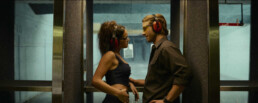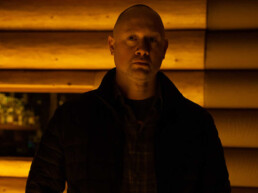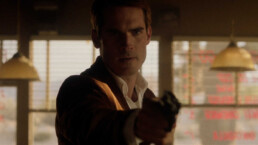Marcus Vetter Endeavors to End War Crimes Against Humanity
Can war crimes truly be prevented, or is the essence of war itself the greatest atrocity? This question is suggested by Ben Ferencz, the esteemed former prosecutor of the Nuremberg Trials. It's also thoroughly investigated by director Marcus Teller in his powerful new documentary, War and Justice.
Through the lens of his documentary, acclaimed director Marcus Teller explores the 25-year history of the International Criminal Court (ICC) and its relentless pursuit to eradicate the gravest crimes against humanity. In our exclusive interview, the visionary filmmaker discusses the intricate journey of creating this thought-provoking documentary and the insights it unveils about justice in times of conflict.
It’s a pleasure to meet you, Marcus. How did you decide to make this documentary about the International Criminal Court (ICC)? What drew you to its 25-year history?
In 2008 I was doing a film, Heart of Jenin, about the story of the Palestinian father Ismael Khatib whose son was shot by an Israeli soldier in the Palestinian city of Jenin. Instead of seeking revenge, Ismael decided to donate his son’s organs to Israeli children as a sign of peace. Such actions instead have inspired other people to do the same. Luis Moreno Ocampo, the first prosecutor of the ICC, saw the film at the Cinema For Peace gala in Berlin. He was so inspired by Ismael’s bold act of humanity that he called me to visit him in The Hague. He had just received a Palestinian delegation who requested the ICC to investigate possible war crimes committed by Israel in the Gaza war of 2008/2009. But as Palestine back then was not yet accepted as a state and therefore never could ratify the ICC, he had to refer the case first to the United Nations Assembly who eventually decided to consider Palestine as an observer state. With that, Palestine later ratified the ICC and became a member state of the court.
That is why today the ICC has jurisdiction over crimes committed in Palestine even though Israel has never accepted the ICC, and this is why arrest warrants are looming over Benjamin Netanyahu for having committed possible war crimes in the ongoing Gaza war, as well as some Hamas leaders of ordering the heinous attacks on October 7. An act of humanity is so much stronger, and reconciliation can lead to so much more then vengeance and violence. War can be replaced by justice. This is what inspired me most in the making of the film and this has become the main theme of the documentary.
Ben Ferencz argues that war itself is the greatest war crime. How does your documentary address this perspective?
What Ben Ferencz is referring to is the very fact that in all wars, soldiers will carry out atrocities. This is the nature of wars. Civilians cannot be protected, as much as we wish for it. This why Ben, who was the youngest prosecutor at the Nuremberg trial, has spent his whole life advocating that we have to avoid wars by all means. The documentary tells the story of the ICC’s mission to make heads of state accountable who command or order war crimes so that they don’t get away with impunity. In 2017, the Rome Statute is amended by the mother of all war crimes: starting a war of aggression.
Unfortunately, the US has put its veto so that not only the attacked state needs to be a state party of the ICC, but also the attacking state for the ICC to have jurisdiction and being able to intervene. Powerful nations such as the USA, Russia, India and China have never accepted the ICC's belief that they are above the law and can not be held accountable if they commit crimes of aggression, as it is the case with Russia today, but also with the USA when they launched a war on Iraq in 2003.
What were some of the most compelling stories or cases you encountered while researching War and Justice, and why did they stand out?
Most compelling for me was what happened in Abu Ghraib when US soldiers were filming their tortures in an Iraq prison. Because these tortures were used by ISIS as one of their main arguments to recruit people to join them. "Vengeance begets vengeance," as Ben Ferencz says. This stands in total contrary to the story of why I actually ended up making this film. This story of the Palestinian father Ismael Khatib has inspired so many people to do the same. For example, I decided to refurbish an old cinema in Jenin and hundreds of volunteers all around the world did the same. The story was finally told in the documentary Cinema Jenin: The Story of a Dream.
Then, the act of humanity by an Israeli woman, Yael Armanet, whose husband was killed in a suicide attack in Haifa, inspired me. She decided to visit the suicide bombers family in Jenin, which is also told in a heart breaking documentary of two young directors with the title After the Silence. So yes, vengeance and violence begets nothing else other then vengeance and violence. Those who overcome those feelings are truly moving the world. This was the real take away for me at the course of making the film.
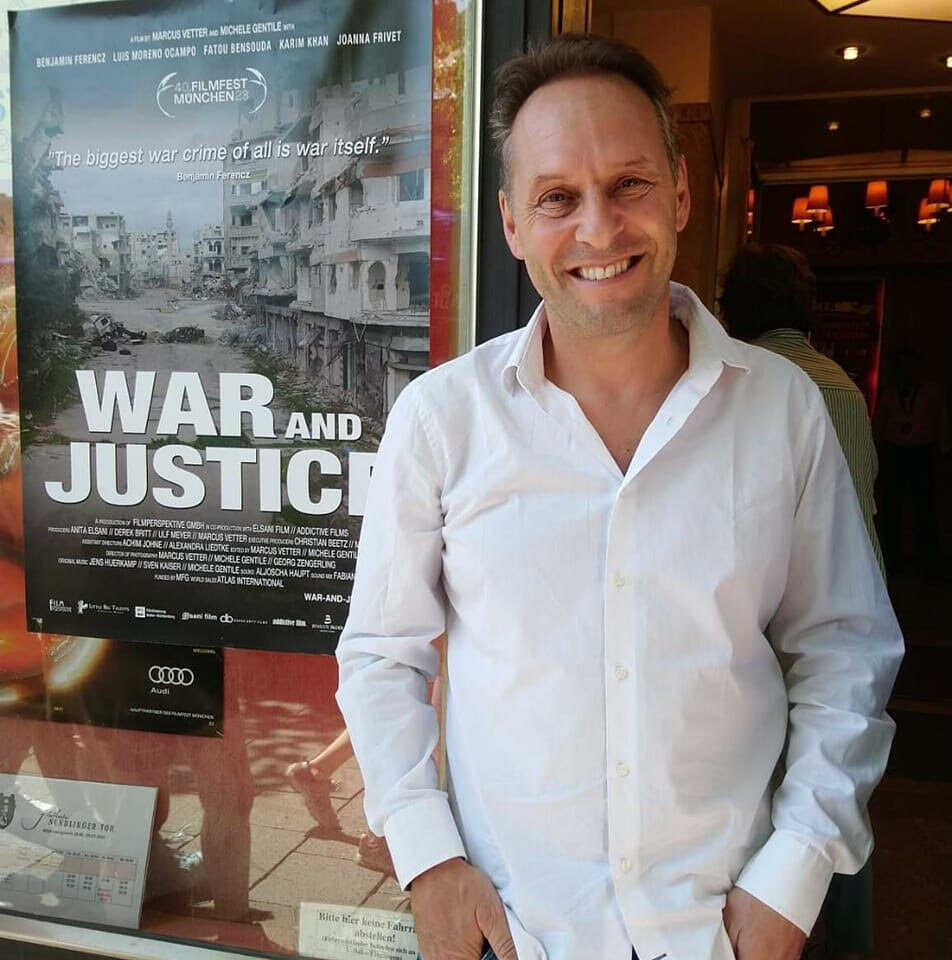
How did you navigate the balance between telling the ICC's institutional history and highlighting the personal stories of those affected by war crimes?
The film’s main challenge was to introduce a dry and very complex subject matter to a layman’s audience. Another challenge was to show what happens to the victims of war without exposing them. For example, the scene of a young, maybe 12 year old boy being abducted to become a child soldier and being beaten up by some soldiers on the back of a truck. This scene is very cruel and hard to watch. A few minutes later, we see a witness in the court being interrogated by the prosecution about him being abducted and beaten up. By listening to his words and his description of what happened to him, our imagination cannot grasp what really happens at war. When this young boy talks about the very fact that they broke his friend’s arms as a punishment, we cannot possibly understand what it really means. But if we see the scene on the truck, it is so unimaginably strong that we hardly can watch it.
This was the balance we needed to work out so that the audience can understand what is at stake, but is not overwhelmed. We tend to look away because we cannot bear it. We read articles about the newest killer drones, F16 fighter jets, about tanks destroying the enemy, and we start to loose our empathy with those being exposed to the war. The film brings these scenes of atrocities in the mildest way possible to the audience, as a reminder why we should not be indifferent. It matters and it could be our children who have to fight the next war.
What impact do you hope War and Justice will have on viewers' understanding of international justice and the prevention of war crimes?
War and Justice is clearly the most important film I have ever directed. There are very personal films, like the film about my Turkish father who I met the first time when I was 37 - My Father, The Turk - or a film about cruelty of hunger. But War and Justice is so important because it presents the audience alternative arguments towards war in a time when war is chosen by the world as a mean of resolving conflicts. A lot of people have made their mind and are now convinced that there may be no alternative to it. That we need to deliver weapons, that we need to be in solidarity with Ukraine, or with Israel or with Palestine, and that we need to finish it. That the time for peace and reconciliation has run out.
Herman Goering, one if the defendants at the Nuremberg trial, was asked why the Germans could possibly opt for this total war. And he said: "It's very easy. You just had to tell them that we were attacked and that we have to preempt it. All the remaining pacifists have to be denounced as traitors." He said it would work the same way in any country and at any moment in the future. Of course there are reasonable arguments for war this time. The appeasement policy with Hitler, for example. That we should never have let Hitler go so far and we should stop Russia before conquering other countries as well. But are we really sure that Russia would do it? And can we really compare the current situation with Hitler’s psychopathic war of aggression? The film makes you rethink your stance towards war and is so important in these times…
Were there any moments during filming or production that particularly challenged or surprised you positively or negatively?
A very important moment in the documentary is the scene with the taxi driver when he drives Ocampo to his hotel in The Hague. He asks a very interesting question exposing some of the flaws of the ICC, for example, why the leaders of the mighty states never will be prosecuted. In my eyes this court will only make a real difference if it is perceived as a neutral and just court that tries not be influenced by politics. We should never forget that 2/3 of the member states of the ICC are from the global south, so the conditions are there for the ICC to be a court of all nations.
Karim Khan, the current prosecutor’s decision to ask for arrest warrants for Hamas leaders and an Israeli Head of State and his Defense Minister, were very bold decisions that has sent a message to the world that he does not shy away to stay neutral even though the US has threatened him to retaliate even personally against everybody from the ICC involved in those decisions.
How do you see the role of documentaries like yours in influencing public opinion and policy regarding international criminal justice and human rights?
It's hard work. You have to work on a film until you are really sure that the audience is truly emotionally impacted by its story arc and the message of the film. But then the real journey only begins. With the anti-war message the film has, it is a pretty hard undertaking in these days. For some important festivals, screening platforms and TV stations the message of the film is way too controversial. It is going too much against the tide. This makes it very challengeable for us. We are now working with the Dresdner Sinfonics, one of the most prestigious orchestras in the world, and they want to play the music score of not only the film War and Justice, but also my other three films Heart of Jenin, Cinema Jenin, and After the Silence, live, and together with other symphony orchestras and musicians from the different conflict regions Palestine, Israel, Ukraine, Russia, Taiwan, China and Iran. A good number of orchestras already have agreed to cooperate.
So, under the title "Messages of Hope,” we want to spread hope with these stories of normal people that have tried to break the viscous circle of violence instead of seeking revenge. War and Justice will be the last film of the series and after the premier in an important opera house in Germany we will travel with it to symphony orchestras all over the world addressing a totally new audience interested in classical contemporary music. A world class Armenian composer has already agreed to compose the four overtures and re-arrange our existing film scores for these sinfonie orchestras. Stay tuned!
Looking forward, what are the most pressing issues facing the ICC and the pursuit of global justice, and how can documentaries and media address these issues?
The ICC’s biggest challenge now is to keep working in making this court to be perceived as a neutral and independent court. Each chief prosecutor was different and has influenced the identity of the court. Luis Moreno Ocampo, Fatou Bensouda and now Karim Khan. The good thing is they will hand over to the next. So, the ICC is permanently evolving. I hope the film, by having filmed for such a long time period of 13 years and by having given a glimpse of each of the three prosecutors, will help to shed a light at this institution and to make it also for a layman accessible.
Let’s get to know you better! Where are you from and where do you currently reside?
I am from a small German student town called Tübingen, but currently also living in Duisburg next to Cologne. I work as a commissioning editor for a German TV station being responsible for a slot called “Junger Dokumentarfilm” for first-time filmmakers. We work together with a prestigious film shool nearby Stuttgart called Filmakademie Baden Württemberg. So while I love directing and producing films, I also love to teach and to be involved with he next generation of filmmakers.
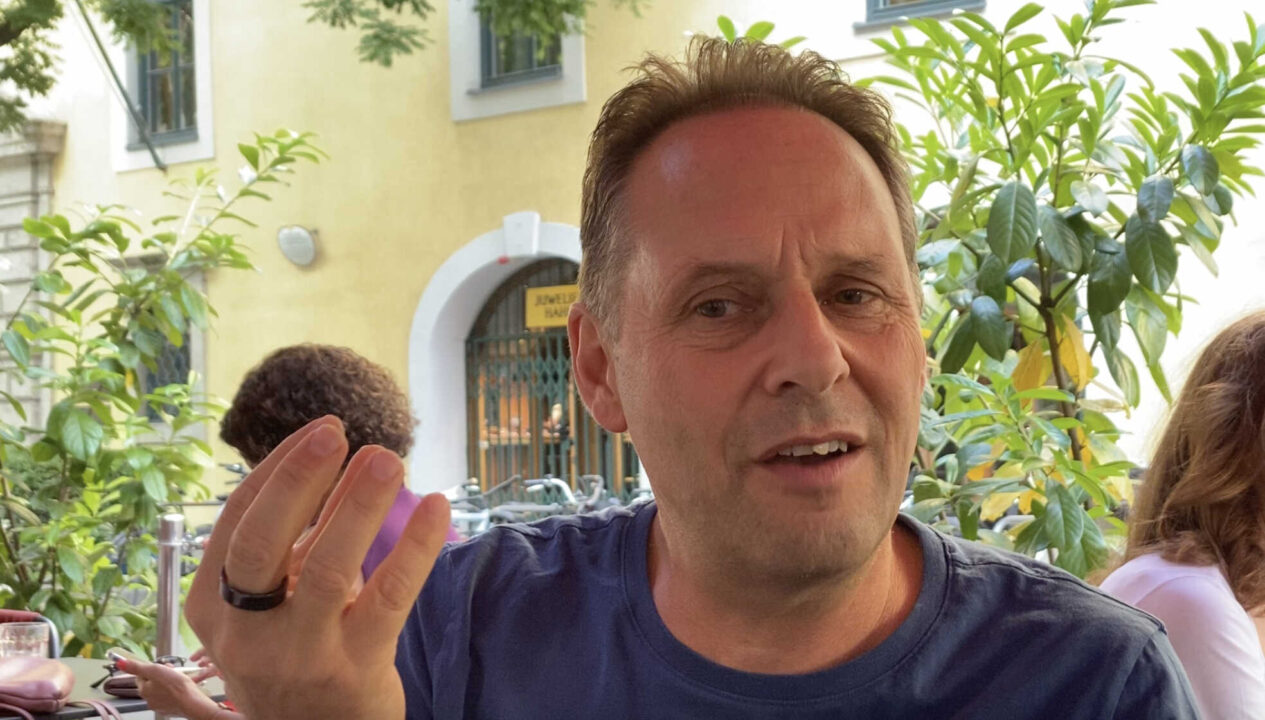
What are your favorite films, who are your filmmaking idols, and dream collaborators?
My favourite film festival is IDFA in Amsterdam. I love to hang out there in autumn and watch these incredible documentaries that directors from all around the world are giving us as a present. They risk their lives for us, and they are embedding themselves in situations and giving us thereby visual and emotional access to a world that we as an audience could never attend. This for me is a true beauty, but unfortunately only few people know about it and can therefore enrich themselves with it.
So, to answer your question, instead of singling out one idol, I am embracing all these filmmakers who are committing themselves to their vision of true storytelling under often precarious conditions.
What is one thing you’ve learned as a filmmaker that you think other filmmakers would benefit from knowing in starting their careers?
Try to overcome your own prejudices and be open towards your story and your journey. We often need to prove to TV stations and film funds with extensive treatments and exposés the quality of our stories. Even though I understand it and think that it is good and important to write your story down for potential commissioning editors, producers , investors and yourself, I really think you should never blindly follow through. If you stay open you will find your story line.
With War and Justice, I only understood at a very late stage that my point was actually your first question you asked me in this interview: That war itself may be the biggest war crime of all.
What is one message that you would like to share with audiences about your work, your general outlook on life, that you are interested in further showcasing in your films?
Never lose hope, and trust in people. Trust in your audience, trust in your protagonist, but most importantly, trust in the people that you are working with. If this trust would be abused one time, never mind. You will be rewarded by all the others who you have trusted in a million times.
Danica Jensen Confronts The Addictions That Haunt Us
Is it okay to cause harm if it means getting someone the help they need? This is the central idea writer-director-actor Danica Jensen explores in her light-hearted yet heartfelt short film, Get You Better. Based on a true story, the short follows a woman who is unable to submit her alcohol-dependent boyfriend to rehab on the technicality that he's "not drunk enough." The film explores the lengths we all go to in relationships to help the ones we love while battling addictions of all kinds.
In our exclusive interview, Danica Jensen (whose cinematic heroes include Taika Waititi and Mel Brooks) discusses her screenwriting process and challenges faced on set, what she hopes audiences take away from the film, her advice for indie filmmakers, and her future projects which may include the supernatural: "I do think that all stories are in some ways ghost stories."
It’s a pleasure to meet you, Danica! I understand that this story–about someone being turned away from a rehabilitation center because they weren’t technically intoxicated at the time of admittance–was based on a true event. What was the origin of that fascinating story, and what did you find compelling to turn it into a film?
It’s a pleasure meeting you, too!
So this was a story that my mother used to tell me. She was trying to get her friend into rehab for alcoholism and they said he wasn’t “drunk enough.” My mother was understandably outraged by that response, so she sarcastically asked, “If I bring him to a bar and then bring him back, you’ll take him?” And they pretty much said, “Yes.” That line ended up in the film verbatim. She was thankfully able to persuade them to take him then and there. But I was always fascinated by that line; what would happen if she couldn’t have convinced the rehab differently?
It posed such a moral conundrum that became the central question of the film: is it okay to cause this harm if it means getting someone the help they need? It made for such a compelling story that I just started writing it down, and soon enough I realized it would make a great short film… little did I know that it would resonate with so many people who have experienced something similar.
What was your screenwriting process like? Do you have a specific method of writing that works best for you? What were your main influences and sources of inspiration while writing?
Like many writers, I’m told, I have to trick myself into writing. I’ll set a timer for 20 minutes. Even if I only get one word down on the page, I’ve done my writing for the day, that’s it, that’s all I had to do. And usually, I’ll get in a rhythm and will end up writing for longer than that. But sometimes it’s just a word or two, and so it can certainly be a slow process at times. Once I have a draft I’ll get eyes on it and get feedback from a bunch of different places. Receiving and implementing feedback, I’ve learned, is a total skill set; you have to be careful that you don’t let people tell you what they want your story to be, but I think outside feedback is so necessary and makes the process feel a bit more collaborative.
With this project, I also had a research period. I went to some open AA meetings and spoke with recovering alcoholics about their experiences with addiction generally, and with their experiences going to rehab. I wanted to figure out what the deal was with this “unofficial policy” preventing people from getting the help they were asking for… I wasn’t sure if it was a fluke or a common occurrence. It was really surprising to discover how many people had a situation similar to Wesley and Devin – I hadn’t expected that.
What ideas, themes, and messages did you want to ensure came through in telling this story on screen?
I never want to be prescriptive as a storyteller. I want audiences to be in active conversation with the film and to bring themselves and their lives to that conversation. Whatever they get from the film is uniquely theirs.
That said, this film deals with addiction, what it’s like to be in addiction as well as to love someone with addiction. And though this film deals with alcohol, it was also really important to show the addiction of love and codependency in relationships. That’s the universality that I held onto throughout the process – that we are, effectively witnessing a breakup between two people who love each other, but who cannot possibly be together.
It was also really important to me not to tell the audience how they should feel at any given moment. Sometimes you’re really on Devin’s side, sometimes you’re really on Wesley’s, and so I kept a keen focus on that balance throughout the entire process.

How did you go about assembling your crew?
I worked for two and half years as a production assistant in television, so my fellow PAs were my first call. Having that rapport and trust off the bat made the shoot go so smoothly. Everyone else came on board as a friend or friend-of-a-friend… a lot of folks I had worked with before in theatre, like our Production Designer jbroc and Costume Designer Emmy Weissman… Our DP Logan Floyd went to high school with my Co-Producer (and Co-Star!) Baldur Thor, so they reconnected and we hit it off. Logan was such a critical piece of the puzzle because I had to go off the monitor so often to perform, and I trusted him not only to set up incredible shots but to keep an eye that the story we were telling stayed on track.
What we had set out to do, and where I believe we were extremely successful, was to assemble a crew that is just really good, kind, wonderful-to-be-around people. Talented, of course, but prioritizing a set where the people are as kind as they are talented, made for the best on-set experience I’ve had to date.
Impressively, along with writing the film, you also starred in, produced, and directed it. Did the story or characters change at all from the writing through shooting it?
Oh for sure. They say you make a film three times: in writing, in production, and then in post, and this project was no exception. Once we had locations locked, little things had to change. One of the big changes that comes to mind is a scene where Wesley is supposed to have a whole dance sequence on top of the bar. The bar we went with didn’t have high enough ceilings to do that, so I had to rewrite how that whole sequence happened without losing the essence of the moment.
Then when we brought actors on set, moments changed and lines changed. Once I’ve written something and handed it over to actors, they become the experts of that character; I love to see what they want to bring to the role. The whole process of filmmaking to me is about discovery – discovering what the film wants to be – so I listen for that and as long as I’m confident in the bones of the story, I really like to find the freedom to play. And that means that things do change along the way.
I’d love to hear about your method of performance. Can you share anything about your process of preparing a character? What in your opinion makes for a great performance?
Great performances, I think, are simple and honest and oftentimes surprising. As a director, I love it when actors find something a bit unusual or not-so-obvious about a character or a moment in a scene, and as an actor, I always look for those creative moments too.
I don’t subscribe devoutly to any single methodology of acting, I trained in a variety of different methods, and to me, they are all tools to be used when the right challenge arises; you wouldn’t use a hammer to paint a house, or a paintbrush to drill holes in the wall. A great teacher once told me that your technique is only meant to be used when things aren’t clicking when you need a little help to figure something out, and so that’s always been my approach. I come from a physical theatre background, so I do tend to gravitate towards Grotowski, Laban, and Suzuki – I prepare a character through the body first and go from there.
With this project specifically, I didn’t have to do a whole lot of acting prep because of all of my directing prep and writing work. A lot of it overlapped, and I felt I knew this character better than just about any character I’d ever worked on, by spending over a year with her in the writing process.
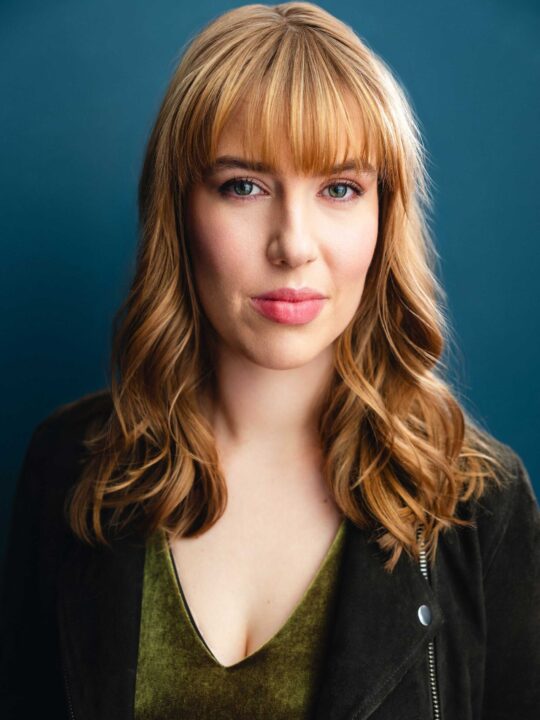
What obstacles did you face throughout making the project? What was the hardest challenge to overcome, and what was your most unexpected breakthrough?
I mean, don’t get me wrong, producing a film is literally about solving one crisis after the next, and we had all the usual obstacles; losing locations, chasing daylight, etc… but I think it’s a huge testament to our crew that we made our days and had a really enjoyable, smooth time on set. The most stressful thing that happened was Day Zero… our Producer’s car that was supposed to transport crew members and part of our gear rental had its carburetor stolen in the middle of the night and we had to find another car… but hey, that’s why you have contingency and I’m honestly really grateful it happened before we got on set because it was pretty smooth sailing from there.
Is there any scene in particular that you are most proud of, or think back on fondly?
There’s a scene where Wesley goes into the bathroom of the dive bar, and the bathroom we shot that in was actually the men’s room of a senior living home… in other words, it was super bright and super pristine. So first thing we did top of day one was graffiti the entire bathroom with expo markers and bathtub paints and everyone on the crew pitched in – there were inside jokes all over the walls and it was such a fun way to start the shoot… I’m just so thrilled with how it looks on camera and it looks nothing like the original bathroom – I love dramatic transformations of space.
What takeaway do you hope audiences will have after watching your film?
I know that everyone’s takeaway will be unique based on their own life experiences. But of course, there’s an aspect of wanting to raise awareness about this culture of “means testing” in our social and medical programs – that is, that you have to hit a certain “rock bottom” before anyone is able or willing to help you.
Universally, though, I hope people can ask themselves what they would do in a situation like this, how far would they trudge into the moral gray area if it means saving the person they love?
What is the future of this film? Do you have any future creative projects?
We just had our World Premiere at the Provincetown International Film Festival, so right now we’re focused on the festival circuit and getting to share this story with as many folks as possible. I had intended for this to be a one-and-done short, but so far we’ve had a lot of responses hoping for this to be a feature, so we’ll see!
I do have a horror-comedy mockumentary feature in the development pipeline, that I’m hoping will be my first feature.
Let’s get to know you better Danica. Where are you from, and where do you reside?
I’m rather nomadic, I split my time between NYC, the Hudson Valley, and Provincetown, MA.
What are your favorite films, who are your filmmaking idols, and dream collaborators?
Oh, man… Beetlejuice & What We Do in The Shadows are right up there. I’m a huge fan of Taika Waititi & Edgar Wright & Mel Brooks… no surprise how the horror-comedy theme emerged in my work. I would drop everything I’m doing for the opportunity to collaborate with them!
What is one thing you’ve learned as a filmmaker that other filmmakers would benefit from knowing in starting their careers?
You need to arrive on set so prepared – more prepared than you even think you need to be – but never stuck in a fixed mindset. As much as you need a plan, you need to be able to let go of the plan. And I think that’s easier to do when you surround yourself with the right people on set.
What is one message that you would like to share with audiences about your work, your general outlook on life, that you are interested in further showcasing in your films?
All of my work in some way, shape, or form always comes back to ghosts – directly or indirectly. I am not sure what message that holds for the audience, per se; ghosts deal with invisibility and powerful forces, the past, and hauntings…. I do think that all stories are in some ways ghost stories. What I know for sure is that ghosts are something that endlessly excites me, which I guess is my message to the audience: find something that you’re endlessly excited about – dare I say obsessed with – and share it with the world.
'Hit Man' Review: Glen Powell's Slick, Seductive Star-Making Turn
If you’re in the mood for a darkly entertaining crime comedy that can be watched at home tonight, look no further than Hit Man (now streaming on Netflix). Starring Glen Powell and Adria Arjona, Hit Man tells the story of a fake hitman who gets in too deep when he gets tangled up in a romance with an alluring woman requesting his deadly services.
Set in New Orleans, Hit Man is loosely based on the real-life story of Gary Johnson, a small-town psychology professor who also moonlights as a tech for the local police department. A geeky academic, Gary (Glen Powell) lives an ordinary, predictable life (with his two cats, “Id” and “Ego”). However, all of that changes one day during a routine sting operation when Gary–quietly manning the microphones–is forced to take the place of the undercover cop who is about to meet with the target who believes he is a real-life hitman.
Quickly swapping his “jorts” for “jeans,” Gary instantly transforms into a tough guy and pulls off the performance, leading to a successful apprehension. Feeling the thrill of living life as a new identity, Gary continues to one-up his undercover operations with a dazzling amount of quirky characters, each more colorful and kooky than the last (one of the film’s highlights). It’s all going smoothly until he meets Madison (Adria Ajorna), who meets Gary–or, who she believes is the hunky “Ron”–for protection from her ex. A romance is born, putting Gary in the tricky–and dangerous–situation of continuing an affair with a would-be criminal that complicates everything.
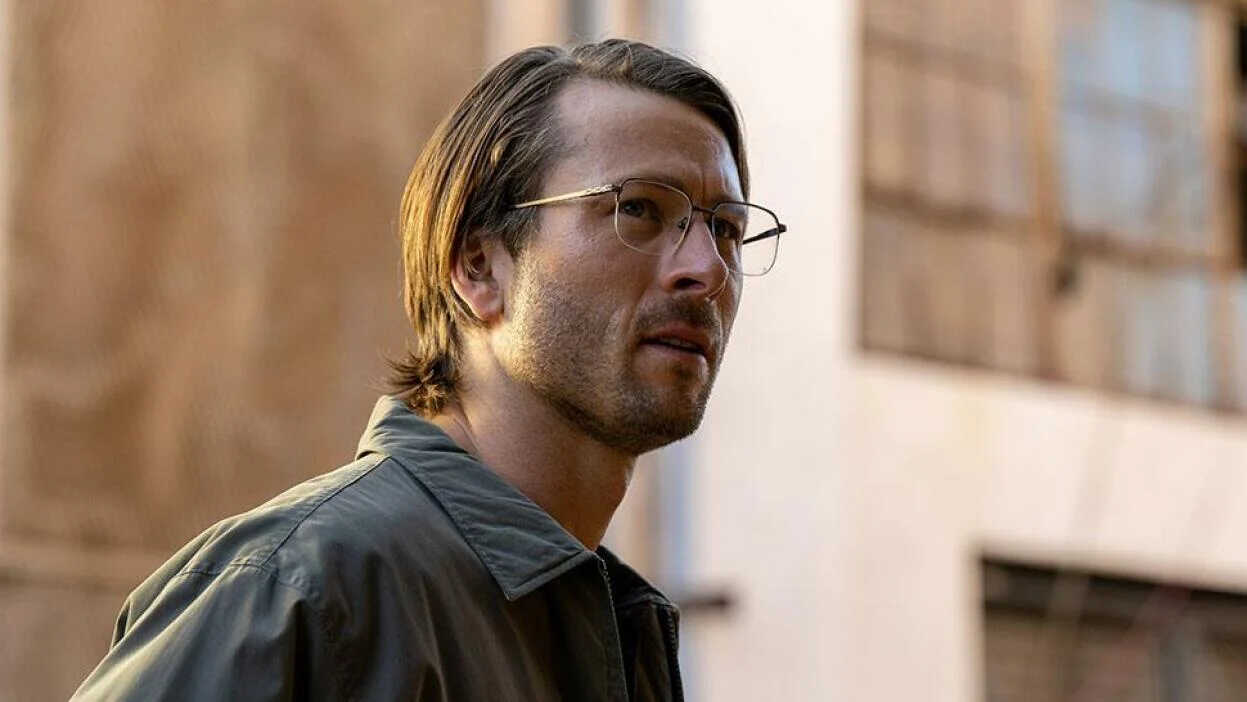
With its quirky humor, noir style, and dark thrills (mind you, this is a comedy about people hiring hitmen to “off” people), Hit Man is a fun movie that will entertain audiences. The movie offers enough enjoyment for a night in at just under two hours long.
Hit Man’s main headline are the performances of its stars. As Gary, star-on-the-rise Glenn Powell gets any actor’s dream role, being able to shape-shift into an endless amount of colorful characters (he’s also credited as a co-screenwriter and producer of the movie). As Madison, Adria Ajorna is hilarious, cunning, and captivating to watch onscreen. Together, the two are magnetic.
Fans may know writer-director Richard Linklater from such accomplished films as Dazed and Confused and Boyhood, but Hit Man is more entertaining than arthouse. But the film still asks some deep questions, particularly about identity, and how we construct and invent them to live our lives. Hit Man asks: if you could live a new life to escape your old one, would you?
Now, Hit Man isn’t perfect. I thought that the movie’s plot felt a bit confusing. Now, there are several logic holes (how does he have time to work two jobs and live two lives?). The pacing also feels a bit clunky and oddly edited, taking me out of it semi-often. Still, Hit Man is one of the year's more satisfactory movies you can watch at home.
Ian Ebright Boldly Examines Our Competitive Human Nature
We as human beings can be competitive creatures, and sometimes obsessively so. Ian Ebright is not afraid to confront those darker truths. A Seattle-based filmmaker, Ebright explores these ideas and themes in his first feature as writer-director, The Way We Speak, which Cinemacy called “a rich character study… with a script that Aaron Sorkin would likely tip his hat to." (Watch the trailer here)
Related: 'The Way We Speak' Review: A Cautionary Tale of Obsession
In our exclusive interview, Ian Ebright discusses his screenwriting process, the challenges and triumphs faced as an indie filmmaker, and what he hopes audiences take away from the film. "I miss films that were memorable for their stories and characters; that helped me understand myself and the world around me a bit more. So for people who share a similar interest, I think The Way We Speak and my other films will be worth their time," Ebright says.
It’s a pleasure to meet you, Ian! I’d love to learn about the origin of your new film, The Way We Speak. When did you first conceive this story?
Good to meet you too, Ryan! The Way We Speak came about as I was marinating in two documentaries I love, Best of Enemies and Life Itself, while doing what writers do, which is notice the world around us. At the time, it was the #MeToo and Black Lives Matter movements.
What was your writing process for this film like? Do you have a routine or specific method that you do?
My process is pretty methodical because, without structure, I have a hard time knowing where I am in terms of getting the story right and completed. I usually write per act and then revise per act until the three acts congeal more or less—not that it’s good yet, but cohesive enough to feel my way through it.
Then I’m going back through doing targeted or spot revisions to the whole based on things that are feeling off, like beefing up one character or augmenting my theme throughout. Finally, I get to the printed copy phase, where I’m off the screen and can hold something, mark it up, and fine-tune things. Along the way, I get feedback at intervals from trusted friends, family, and filmmakers.
What ideas, themes, and messages did you want to ensure came through in telling this story on screen?
There's a lot in there, from the screenplay to conversations with the cast and the ways they helped improve what I wrote. The cast and crew and I poured our best into The Way We Speak, and I think it’s a film exploring some timely things, like the consequences of unchecked ego, obsessive competition, and tribalism.
It’s a story that’s wrestling with the difficulty and the importance of seeing ourselves and others more clearly, not just in terms of perceived advantages or disadvantages.
What was it like working with your lead actors, Patrick Fabian, Diana Coconubo, and Kailey Rhodes? What was the rehearsal process like, as well as shooting? Did you discover anything new about the story while working with them?
Working with Patrick, Diana, and Kailey was one of the highlights of making this film. We cast them because they were a perfect fit for their character, but it was getting to know them that made everything that much better. They turned out to be whip-smart, perceptive, funny, and just great people, which makes collaborating a joy.
I had Zoom meetings with each of them before we arrived on set—a great opportunity to hear from true performers about any things that weren’t quite there in terms of their characters. From those meetings, I revised the screenplay again, and that got us closer to the target once we were shooting.
Rehearsals were great; by then we all had a shorthand, so it was quick, pretty painless, and usually had more to do with physical limitations like blocking for a location. There were a couple of instances where things were askew for them on the day, and they’d let me know if something in the scene wasn’t working, which I’m so grateful for. I’d rather have the “pain” of fixing story beats in real time on set than the pain of living with an inferior finished film. And that was a wonderful reminder of how much better good actors make a story; they always understand their characters deeper than the writer.
https://www.youtube.com/watch?v=U5oWUrPTeCw&ab_channel=BrokenTelegraph
What obstacles did you face throughout making the project? What was the hardest challenge to overcome, and what was your most unexpected breakthrough?
Locations were easily the biggest obstacle because it was the holidays, and for whatever other reasons, we had a hell of a time getting locations to commit. When we finally secured our schedule to shoot at Portland Community College, my stress level went down a few notches.
A large portion of the film was to be shot on location there because it had four of our recurring settings in and around their performing arts auditorium—a fifth location, and the centerpiece of the film where the “God or no God” debates happen.
Is there any scene in particular that you are most proud of, or think back on fondly?
For sure. Late in act two, there’s a backstage scene with essentially no dialogue between Patrick, Kailey, Ayanna Berkshire, and Lowell Deo, and it hums just right for me—subtle performances, story crescendo, cinematography, and music. When I watch it now, I feel what I was hoping the scene would accomplish: an ethereal tension and some of the drama between characters paying off.
It directly leads to one character’s outro, played by Ayanna. She and I worked together on improving the monologue for that scene over some long, honest, and vulnerable conversations. We were aware of the pitfalls, of how easily that scene could become something we didn’t want it to be, and I think we not only avoided those pitfalls, but we brought the dialogue to a really special place—and Ayanna’s performance in that scene is mesmerizing.
What takeaway do you hope audiences will have after watching your film?
I like films that challenge me and get under my skin a bit, even while there’s redemption, and I hope audiences have that experience with The Way We Speak. And I hope audiences feel they watched a compelling story that was well crafted.
Let’s get to know you both better. Where are you from, where do you reside?
I’m a born-and-raised Seattleite. Still here!
What are your favorite films, who are your filmmaking idols, and dream collaborators?
My filmmaking idol is Martin Scorsese and it would be a dream to collaborate with him. Martin, if you’re reading this, please executive produce my next feature. I’d say the same thing about Werner Herzog. My favorite documentary is probably Herzog’s Grizzly Man. Up there on that short list is Sideways, my favorite comedy; Die Hard, my favorite action film; and Moneyball, maybe my favorite all-around movie.
Another dream collaboration would be being a writer and director on a Vince Gilligan and Peter Gould series. It’s not because Patrick is the lead in The Way We Speak that I say Better Call Saul is one of the best television series of all time, way up there with greats like The Wire and Chernobyl.
What is one thing you’ve learned as a filmmaker that you think other filmmakers would benefit from knowing in starting their careers?
I think the fact that my first feature is arriving 10 years after my first short film came out might be an answer. Patience and perseverance are never fun at the moment, but I think they’re necessary—especially these days when everything is in transition and there’s so much collective despair and confusion about what to do next.
In some ways I don’t fully understand, that time is often needed to help our stories ripen and become their best. Although I’d like that to stop being so true.
What is the future of this film? Do you have any future creative projects?
The Way We Speak will be out on VOD in the U.S. and Canada on July 23 from Gravitas Ventures, which I’m excited about. And I’m finishing the screenplay for a feature I’m working to direct next, an unapologetic ghost story that’s still very much my approach to things, in that it’s topical and ultimately exploring human nature at its best and its worst.
What is one message that you would like to share with audiences about your work, your general outlook on life, that you are interested in further showcasing in your films?
That’s an interesting question. I guess I’d say that I make the kind of films that I want to watch; films that aren’t around as often as they used to be.
I aim to make films that are story-driven and geared toward thoughtful viewers. More classically structured. I’m tired of all the narrative stuff that has a hook or a concept and little else, and I miss films that were memorable for their stories and characters; that helped me understand myself and the world around me a bit more. So for people who share a similar interest, I think The Way We Speak and my other films will be worth their time.
For more, visit Facebook, Instagram, and Ian Ebright's website.
Evelyn Lorena Explores Identity, Heritage, and God
An actor, writer, and director of Latina descent, Evelyn Lorena is a filmmaker who seeks to explore the largest questions of life through her art. Identity, heritage, and even God are just a few topics that the up-and-coming star explores in her new short film and directorial debut, Gabriela.
In our exclusive interview, Evelyn talks about writing and starring in her directorial debut as an indie filmmaker, as well as portraying Latino representation onscreen in an empowering light, and the underlying forces that connect us all: "I really love the idea of fully exploring the meaning of love — and I don’t just mean the proverbial getting together with someone, but what love really means beyond ourselves."
It’s such a pleasure to meet you, Evelyn! I’d love to learn about the origin of your new film, Gabriela. When did you conceive of this story?
Thank you, such a pleasure to be interviewed. I truly appreciate Cinemacy and I love the filmmakers you’ve been able to feature!
I feel as if Gabriela has two origin stories. I originally wanted to see a very real-feeling film about the Latino/US immigrant experience, but with a focus on their inner life. I found the stories told about Latinos – if any – had the burden of portraying the experience of how they entered the United States. The struggle of the journey over the border — and while that is a very real part of many of those in the Latino immigrant experience, I felt the experiences of Latinos were far more vast than that, particularly when it came to the vitality and spirit within our community.
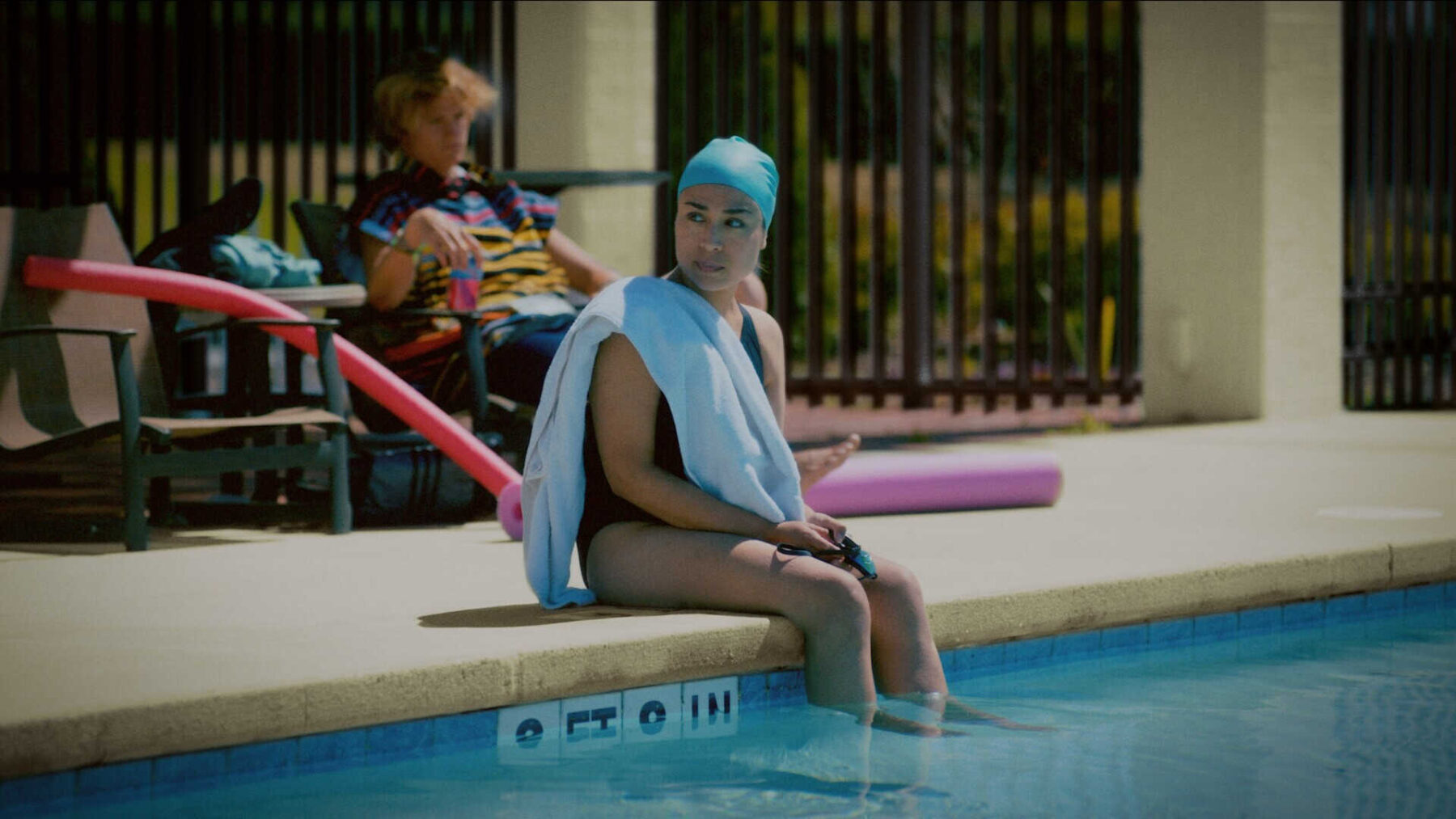
I was confused why I wasn’t seeing the more human aspects explored, the way some of my other favorite films explored their characters. I thought pushing that expectation and conventional narrative and bringing it on a journey to another place would be interesting. And the second origin came a little bit later once I began encountering some very dire health issues. At the time, I constantly contemplated the true meaning of freedom: who creates it and how we create it for ourselves, especially in systemically constricting environments. I really wanted the lead character to embody the nuance and complications that come from an experience like this. It isn’t just about the hardship, but when there is hardship, there can be a lot more beneath the surface of our perceptions, and there can be a lot of cultural and personal richness that can be overlooked because of those preconceived notions we have of others.
And it was important for me, as it is to our community, that despite appearances we find ways as humans to value ourselves and reconnect to those things. Things we are encouraged to forget or erase, like our heritage or inner lives, in order to assimilate or “fit in.” I suppose I’ve found that looking for that exterior validation can be the most toxic of things, and actually reclaiming something for yourself and cultivating self-acceptance and self-validation creates more of the personal freedom we’re all looking for.
What was your screenwriting process like for this film? Do you have a routine or specific method of writing that works best for you?
Hmm… I feel the routine of creating something for me goes to crafting creative spontaneity versus having a particular structure each time. I come at writing the same way I come at acting I think — because it’s the only way I know how to craft a character or story. I don’t see it that much differently, but that could be because I just see it through a performing lens. That’s how I have moved through this industry primarily, as an actor. I feel a lot of the process is intuitive if that makes sense.
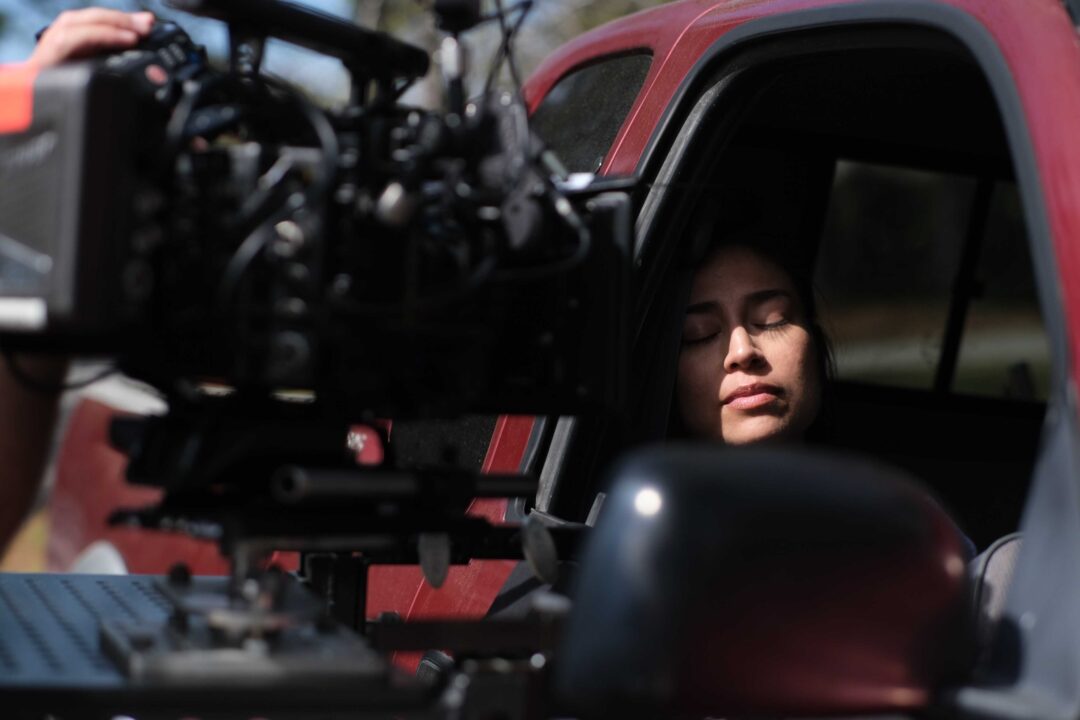
(I’m weary to describe it at the risk of sounding pretentious like a faux spiritual guru or something, haha. I swear my efforts are genuine!) But, I guess for me the first step is to feel something and really try to understand a story without judgment — like truly looking at it as if it were myself in that position as if the experience were coming out of me. And, not the person that you and everyone else knows, because it’s not you, and it shouldn’t be “you,” but more as if that particular point-of-view is now yours. … then you get reminded there is no real “you” anyway … SEE? It sounds really crazy, but I also guess that’s empathy.
They have to be real people on the page first: the people you see walking around really believe the points of view they carry. I’m not entirely sure how I or anyone else achieves anything creatively. It’s a strange sort of intuitive magical exercise, and again, I hate saying that because then it feels precious or elitist — and it’s not! Art is for everyone. It’s just that you’re praying it works out or the stars align. I think the process can only be understood through the experience of it.
What ideas, themes, and messages did you want to ensure came through in telling this story on screen?
I really loved the idea of water as this force with many layers. Almost as if the thread of “God” is in the water. Whatever that means to someone. I feel like God has been traditionally portrayed as this force, or rather a man, in the sky looking over us — away and separate from us. But I feel like that’s a very limited idea. It can be the father figure, but it can also be many things too. Maybe another idea of God can be just the thing that holds us together. Or even inner guidance.

There’s this new concept in quantum physics that talks about an invisible layer that holds realities together and it really reminded me of what I’m talking about. I’m not trying to throw any kind of blaspheme here, just trying to expand on these conventional and at times controversial ideas. I really don’t think we have to believe something in a certain way, but I think that in the film, the water acts more as a thread for Gabriela to reconnect to those etheric forces we hold in our life: things like identity, heritage, her inner nature, or even God itself. All of that is very personal and becomes a very personal understanding of those concepts and I wanted that inspiration or reconnection to begin with the water.
Gabriela is such a personal story, about a young undocumented Guatemalan woman pursuing her dream of swimming in a country club swim team. Was it difficult for you to write and confront these issues of marginalization, economic status, and self-acceptance?
Marginalization is such an interesting concept to me. I’ve found when you speak to people within immigrant communities, there’s not a lot of room or time for self-pity or victimhood. Generally (or in the case of my family) they’re focused on survival and moving forward. They’re humble, motivated, resourceful … and I think that’s instilled throughout the generations. They’re not perfect, but they are human. Vastly human. So, it’s always interesting to me to hear “marginalized” because it’s really only how someone else is socially conceiving the community as “other” or less-than, but that couldn’t be further from the truth.
I’m certainly not trying to preach, but there is so much cultural richness and capacity there. They aren’t marginalized in spirit. It’s more how society has deemed them, sometimes out of convenience, social power dynamics, or in many cases the actual law. I think that’s where part of the marginalization comes from — perception (among other things) — which to me again is sad because there is so much humanity present within the Latino & Indigenous communities.
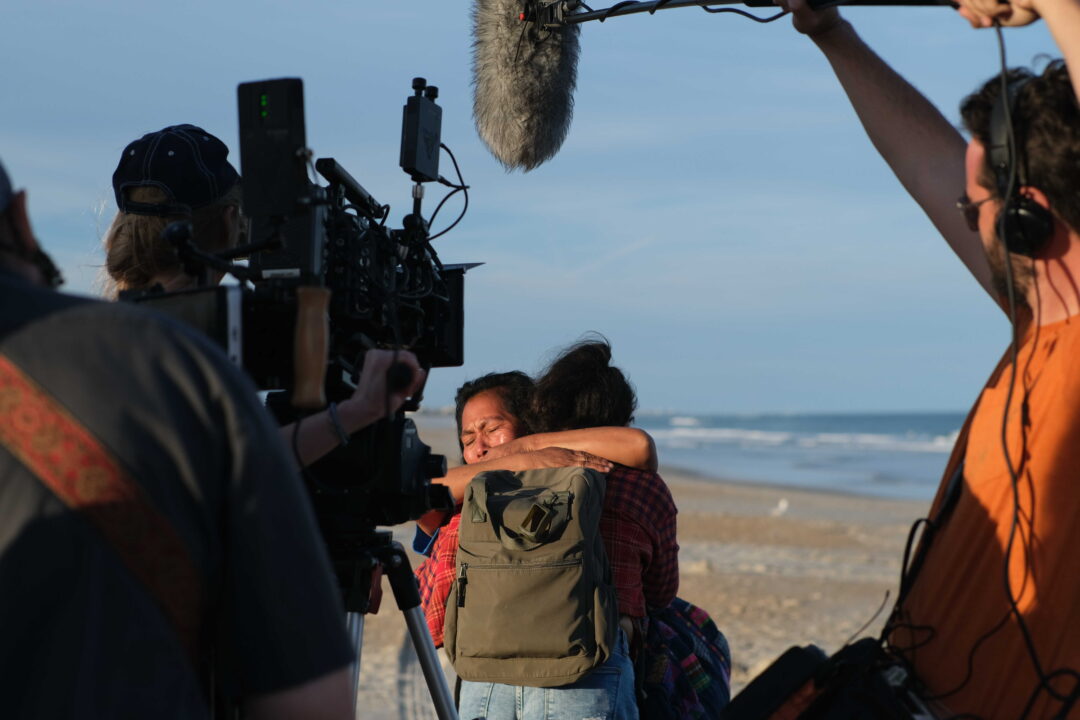
I think that’s one of the sources of frustration for Gabriela in the film. She can’t see why there are barriers to her existence because she is just as human as anyone else. The journey is not literally about the swimming, or say, her being entitled to anything. It’s about her essentially asking for access to opportunity, to be seen as a human in all aspects of her life – even to herself. The trouble is being forced to feel less than when you aren’t. It’s a deep invalidation. I’m sure we can all relate to that.
But, I think that is what made confronting these topics and writing the story an exciting process, even if the nuance involved felt difficult to accomplish. Empowering someone who perhaps traditionally, especially in media, has been portrayed as second-class, or with throw-away humanity, and creating a story that shows otherwise. Empowering Gabriela within the story for herself and her heritage was important and very personal to me because it mirrors my own journey. I hope it can mirror the journey of others and stir something within the audiences that see the film in that same way.
Along with writing and directing the film, you also star in it. When did you start acting, what do you like about performing that differs from writing and directing, and what was it like to direct yourself?
My first play was in 5th grade as Dorothy in The Wizard of Oz. Haha. But after that, I was encouraged to focus on my studies and it was a bit of a painful road to convincing my parents this was a viable thing until it wasn’t. Eventually, they understood — I think. Sometimes parents need a little reassurance because they want the best for you and don’t want to see you fail or struggle.
I love performing because you really get to express something so viscerally. It’s why I started writing because that desire to express another point of view or experience is so strong. I really love the idea of knowing what it’s like to be you. It’s interesting to me because I don’t really believe we’re all that different. It’s just identity, the packaging, that’s different sometimes.
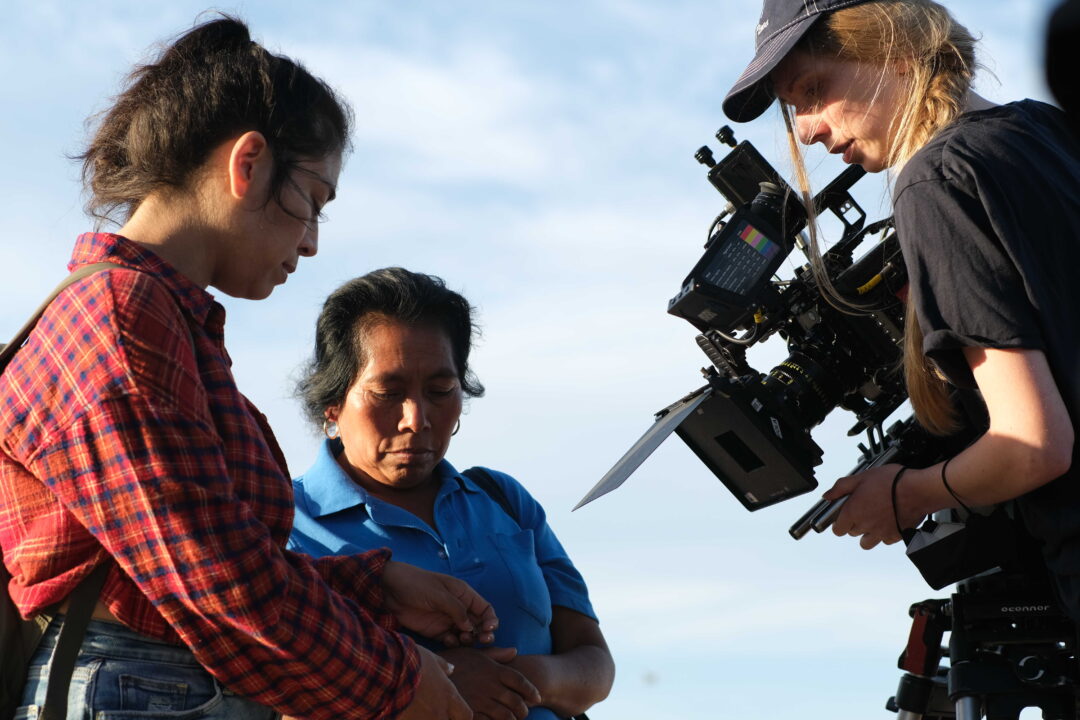
I feel really connected to others and I suppose that’s what led me to direct as well: to connect to other people and also because I had such a specific idea of how I wanted the story of Gabriela to be told. It didn’t feel too odd to direct myself, because I think on some level actors have to learn to self-direct whether it be in auditions or otherwise. You end up having a grasp of directing, so it was about translating that process to set.
That is absolutely not to say that directing is easy, or a throw-away, or that anyone can do it. I have so much admiration for directors that it still feels difficult to call myself that because I’ve seen the work it takes to make a great film, and of those I admire, it still feels like a mystery to me.
What was the rehearsal process like, as well as shooting? Did you discover anything new about the story, your character, or yourself while working with your actors?
The right actor can really understand your words. I felt so fortunate I found the people and the actors I got to work with. I had a really specific idea about the dynamic of the relationships — and of course, you don’t want that to close yourself to other ideas, but I was floored at how Maria and Viktor were able to express that so specifically and seamlessly. It was so wild, especially since I hadn’t worked with them before. Production can carry so many variables and technical difficulties on its own, so having them understand their characters so well was just beautiful. I’m really grateful to them for their talent.
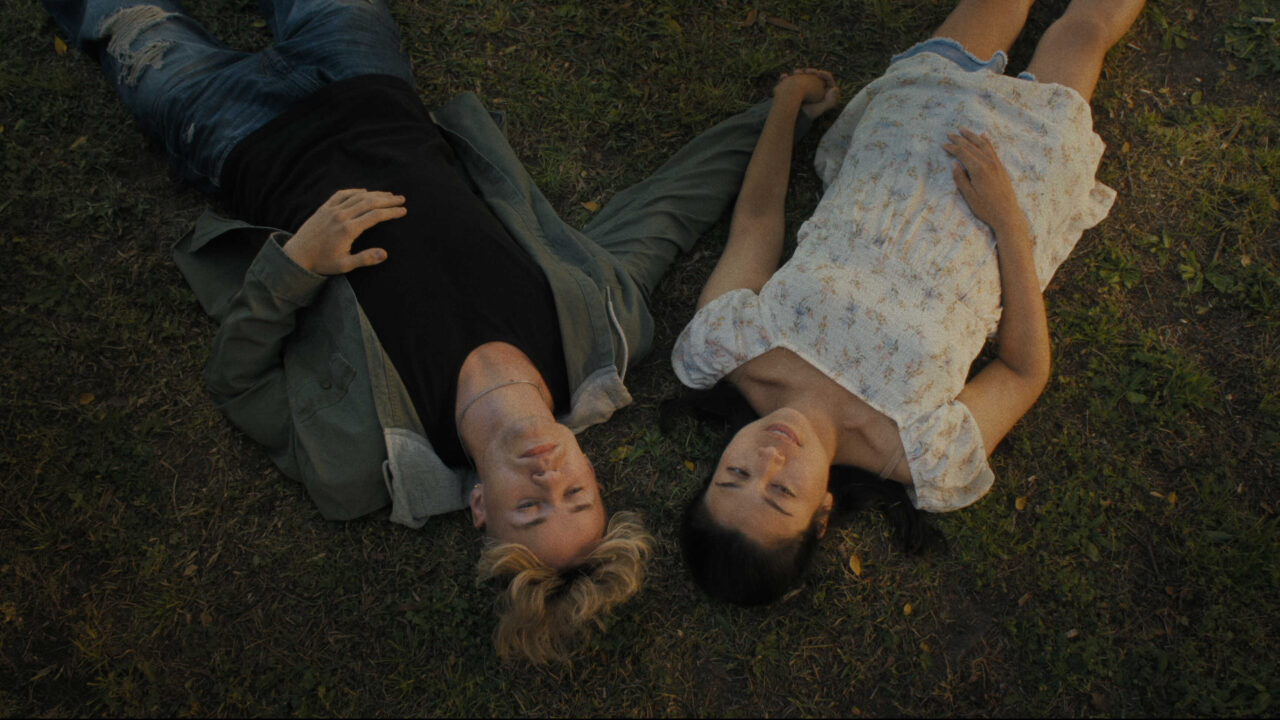
What obstacles did you face throughout making the project? What was the hardest challenge to overcome, and what was your most unexpected breakthrough?
Creating the water sequences. Not only because it was a limited budget, but the specificity of the water had to be shot in a way we could control it, so we opted for the dry-for-wet setup. I absolutely love what our resourcefulness came up with. I have to thank the stunt coordinators Brett Copes and Constance Palmer, alongside the Grip & Lighting Team of Ben Davis & Bean Brambell, and production designer Emily Marquet, as well as the former Screen Gem Studios. Without them, it really wouldn’t have been possible.
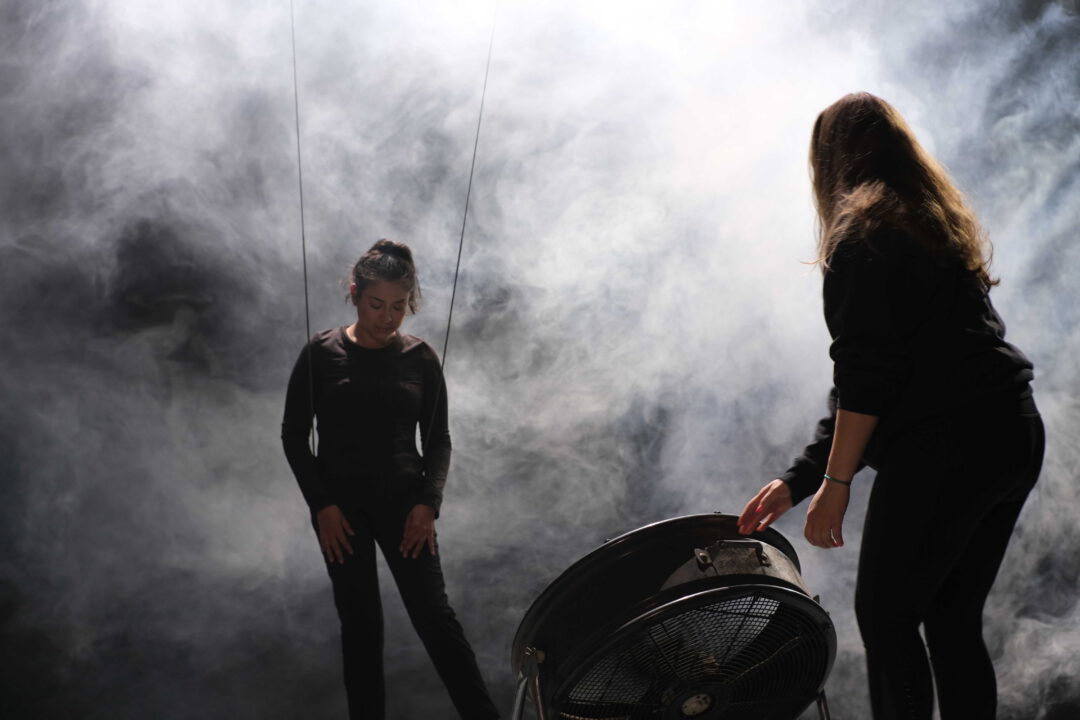
I guess the second biggest challenge was also being mindful of my health while shooting and shooting the water sequences because I was undergoing some medical treatments alongside filming. That was a novel challenge.
Is there any scene in particular that you are most proud of, or think back on fondly?
I love the ending beach moment. It really captured for me this idea of generational reconciliation not just for Gabriela but for her family, her people — and trying to express that through a simple and singular image of them standing together. I have to give additional credit to my director of photography Xenia Patricia. She was crucial in that with me.
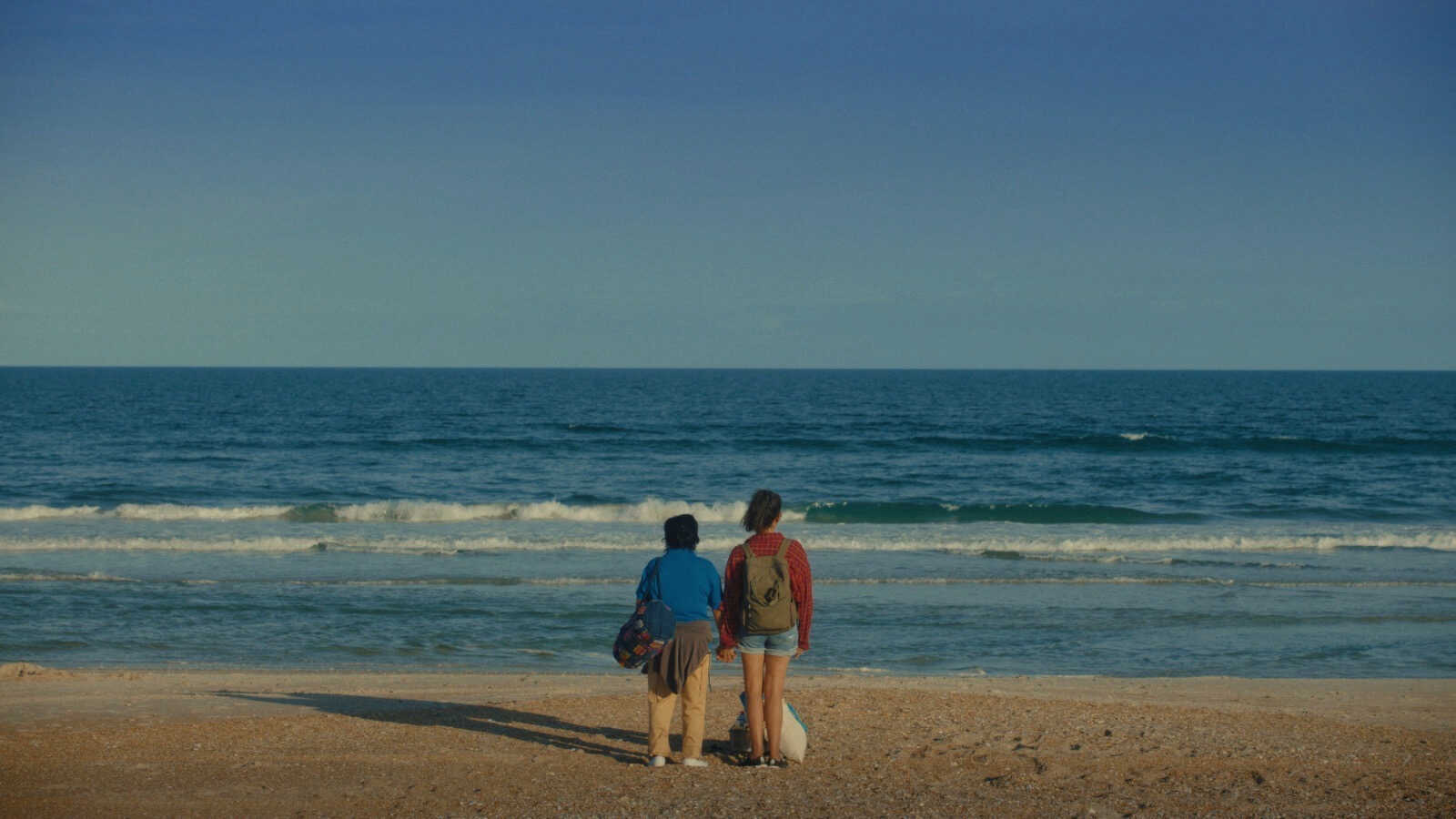
What was it like to win the Netflix and Latino Film Institute’s Indigenous Latino Fellowship?
Oh, it was so beautiful and a welcome surprise. I wasn’t sure what my next move in the industry was. In fact I was contemplating leaving because so many personal things were happening that I needed to take care of and I was just going to overwhelm myself continuing, but then this was almost like a divine intervention.
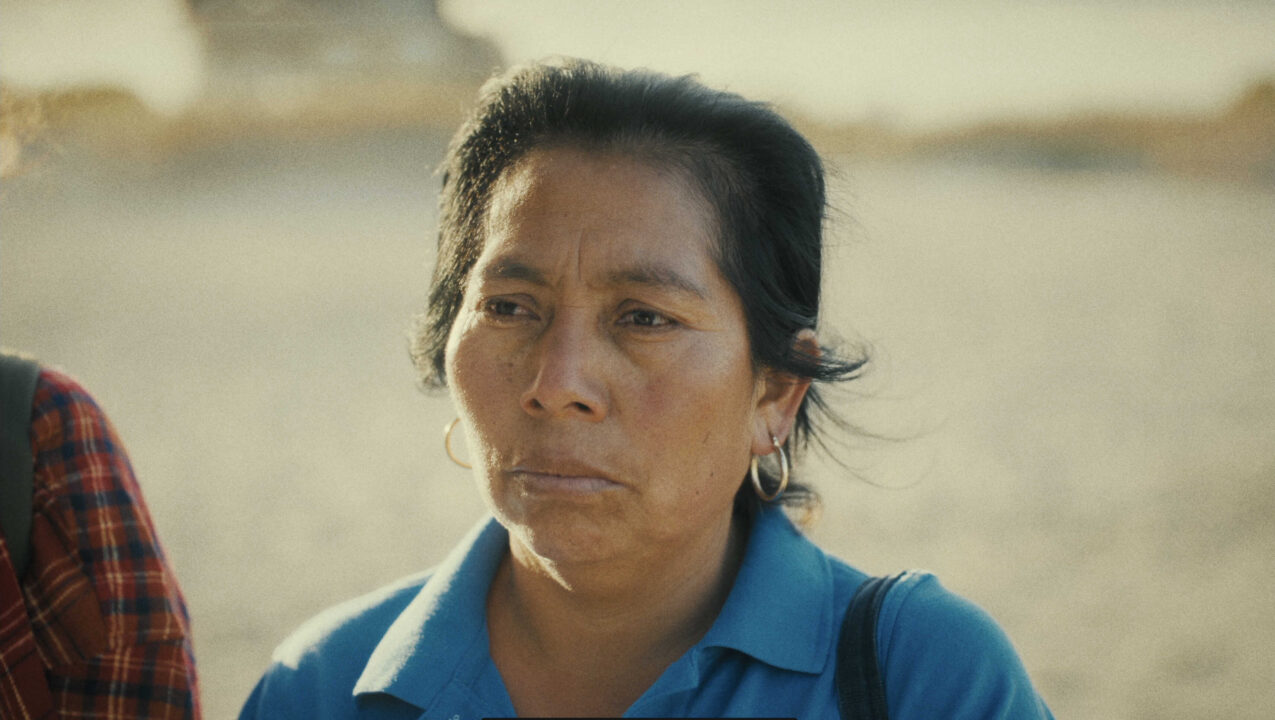
I am really grateful to the Latino Film Institute and Pete Corona, the fellows, and all the mentors who championed our films. My relationship with my fellow filmmakers feels like a family and the guidance I received made this film what it is.
What takeaway do you hope audiences will have after watching your film?
I really want them to take whatever they want from it. It feels almost like it’s no longer my film! I can’t and wouldn’t want to dictate what should be taken from it. But, I suppose if I had to narrow it down, crafting more empathy and understanding of another person. We’re all human and I find it strange that we can look at other humans differently than the grace (or lack of grace) we give ourselves.
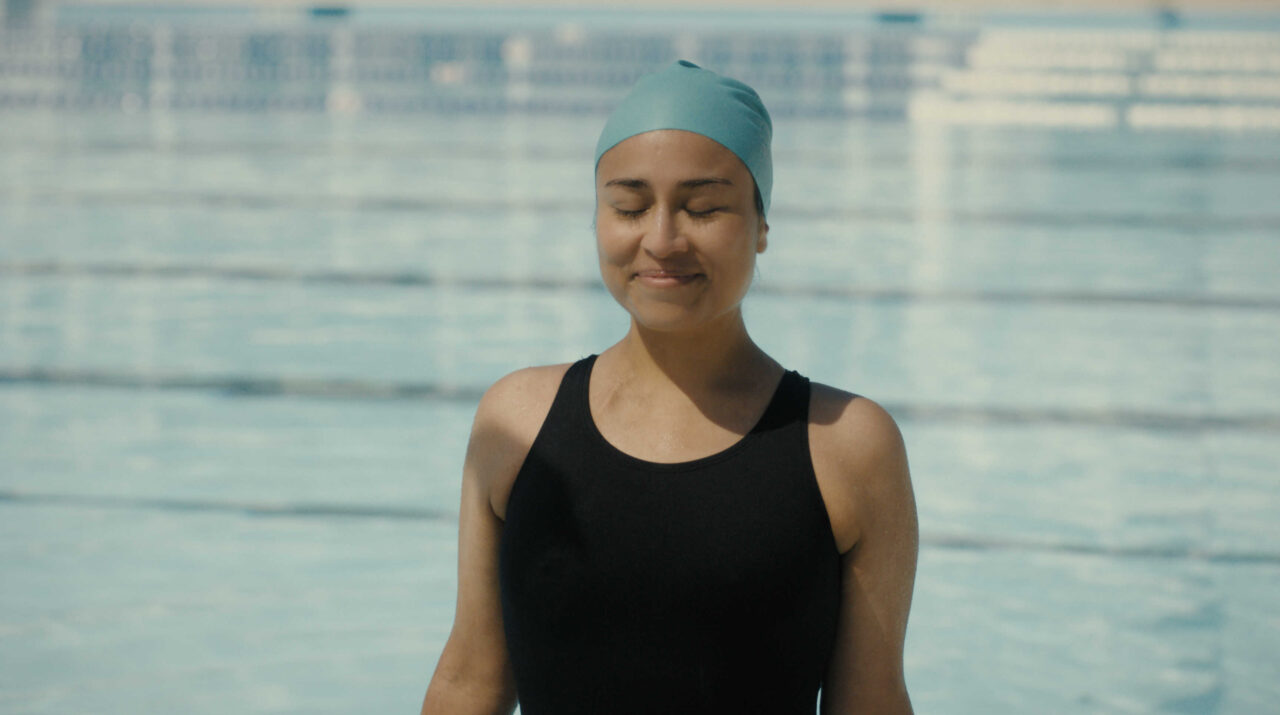
Let’s get to know you better. Where are you from, and where do you reside?
I’m originally from Wilmington, NC where Gabriela takes place. I go between LA and Atlanta now since the industry moved everything down there. I really enjoy being able to travel, it’s one of my loves in this industry. The people and places you get to know.
What are your favorite films, who are your filmmaking idols, and dream collaborators?
Lars Von Trier, Sophia Coppola, Paul Thomas Anderson … Gosh, there are so many, to be honest. I value and love cinema so much, it doesn’t necessarily have to be someone seasoned. Right now my favorite film is Phantom Thread. So I suppose it would be lovely to have tea with Paul Thomas Anderson. (But I feel like that’s everyone’s answer.)
What is one thing you’ve learned as a filmmaker that other filmmakers would benefit from knowing in starting their careers?
Gabriela is my directorial debut, but my advice would be to watch great films over and over. No matter the genre. I was watching Jurassic Park the other day, and action isn’t usually my first aesthetic, but the film is just so well done. It’s beyond an action film. Down to every detail. I really admire being able to be that focused on detail and also still achieve the bigger picture. It’s really masterful.
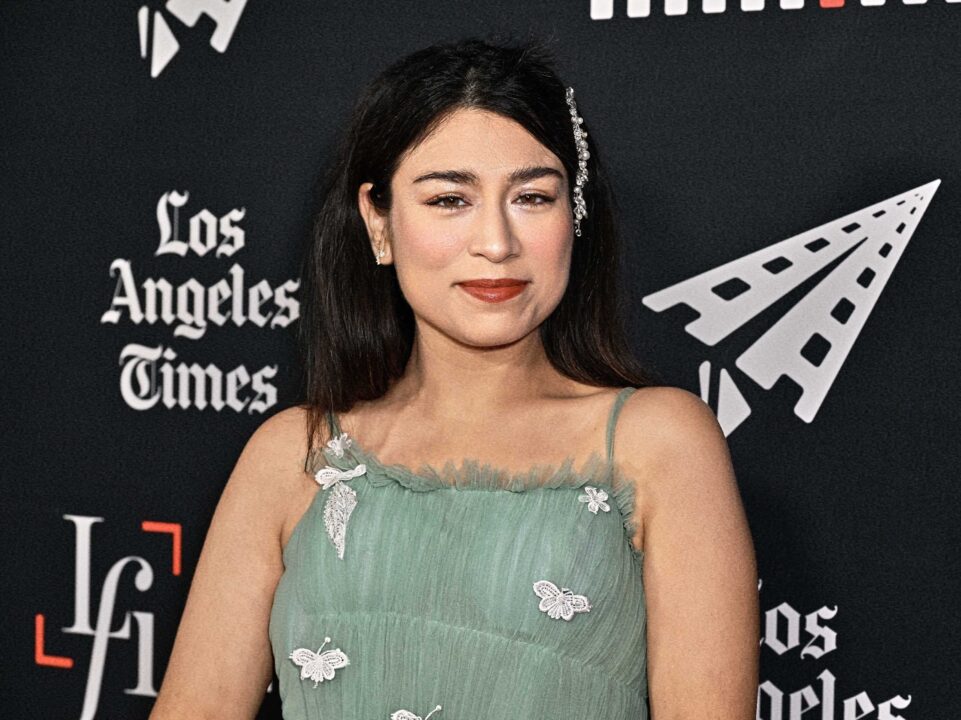
I cry when they’re leaving the island, and leaving behind the majesty of the whole thing — and you’d think I’d hate the island experience because it’s done so much damage, but you also see the conflict of leaving behind this epic beautiful thing the park tried to achieve. It’s so good! I’ve seen it so many times.
What is the future of this film? Do you have any future creative projects?
I am working on a couple of things at the moment — I don’t like speaking too much on something before they’re finished, but I am really moved by the subject matter in and the capacity for nuance in them. I hope others will be as well. Gabriela is screening at more festivals over the summer and you can follow the film page (@gabriela_film) for more updates. We have a screening I also can’t announce yet coming up in August that I am absolutely thrilled about.

What is one message that you would like to share with audiences about your work, your general outlook on life, that you are interested in further showcasing in your films?
I really love the idea of fully exploring the meaning of love — and I don’t just mean the proverbial getting together with someone, but what love really means beyond ourselves. Spiritually, existentially, through our communities, or even in the moments we place strong boundaries because of love. It’s what creates empathy too. It’s everywhere. It’s the fabric and the thread throughout our existence ... I may have just understood another layer to Phantom Thread! (You’ll have to see it.)
'The Last Stop in Yuma County' Review: A Slow Burn Shoot 'Em Up
The Last Stop in Yuma County may be the final rest stop before passing into the next county, but it's also the end of the line for an unlucky bunch of diner guests who get trapped with trigger-happy bank robbers. This slow-burn neo-western crime thriller is a throwback to single-location standoffs where the fun comes from colorful characters, patiently building tension, fun jukebox needle drops, and not knowing what's going to happen next.
The movie opens on a silent desert highway, basking under the hot sun of an early morning, and awakened by the arrival of a traveling Knife Salesman (Jim Cummings) who pulls into a rest stop to fill up his car. Immediately, there is a problem, the Diner Waitress (Jocelin Donahue) points out. The rest stop is out of gas, and the gasoline truck that refuels the station is delayed. However, a larger problem presents itself when more shifty-eyed travelers arrive at the rest stop, and their car perfectly matches the description of the getaway vehicle used to hold up a bank hours earlier.
Just their luck–it's indeed the bank robbers (Richard Brake, Nichola Logan). The Knife Salesman grows increasingly uncomfortable after realizing this fact. As more travelers shuffle in and fill the diner, the slow-boiling setup reaches its climax. The bank robbers brandish their weapons and hold the powerless diner dwellers hostage. With all that stolen money in their car and ample opportunities to flee, what will happen next under this hot desert sun?
The Last Stop in Yuma County is a throwback film that evokes a more old-school western. Specifically, it feels inspired by Quentin Tarantino, whose standoff Shoot 'Em Up scenes feel particularly indebted to Pulp Fiction, Reservoir Dogs, or The Hateful Eight. There are also enough needle-drop moments of old jukebox hits that feel particularly Tarnantino-esque. Written and directed by Francis Galluppi in his feature film debut, it's quite an accomplishment to create a fun world of colorful characters with a story that's fun to get caught up in.
While well executed, the only issue I had with The Last Stop in Yuma County was that it felt too referential. It pays a ton of homage to movies of the same genre, and I was looking forward to something that would've offered a new perspective on the setup. If you're ready for a fun throwback film from a first-time filmmaker, be sure to take this stop.
'The Last Stop in Yuma County' is now playing in select theaters and available to rent on digital platforms.
Laura Waters Hinson and Claudia Myers Put Themselves To The Test
The Test follows the story of Eric Frimpong, a Ghanaian immigrant who works as a maintenance worker at a large retirement center. Eric dreams of bringing his wife and three children to the US, as he hasn’t seen them in eight years. The final obstacle to their long-awaited reunion is passing the U.S. Citizenship test. An elderly couple, Jill and Carl, journey alongside Eric to tutor him to pass the 100-question test that will define his future.
Directed by Laura Waters Hinson and Claudia Myers, The Test is a short film that will tug at your heartstrings and bring a tear of heart and hope to your eye. In our exclusive interview, the filmmakers discussed the inspiration behind making the film, collaborating as co-directors, and ways that you can get involved in supporting legal immigration.
The Test is a short documentary that follows Eric Frimpong, a Ghanaian immigrant who works as a maintenance worker at a large retirement center as he studies to pass the U.S. Citizenship test. It’s an incredible story, and so touching that by the end I fully teared up. How did you both find this story? What did each of you connect with when deciding you wanted to make this film?
Claudia: The idea came from reading an article in the Washington Post. It was about the success of a volunteer tutoring program at a Virginia retirement community to help their staff members. Many of whom come from other countries become US citizens. This was in 2021 and there weren’t many feel-good stories at the time. Laura and I were moved by the way this story brought together two seemingly disparate groups: immigrants and the elderly. And, how each one provided a sense of purpose, belonging, and connection to the other.
Shortly after reading the article, I reached out to the retirement community (Goodwin Living) in the hopes of interviewing residents and staff members in their citizenship program. Truth be told, I started in search of a story to adapt as a screenplay. But in speaking with various people about their experiences, I became convinced the story didn’t need any fictionalizing. It was plenty powerful in reality, as a documentary. In this new form, I felt I would benefit from working with a collaborator. Since most of my work is in fiction, I reached out to my friend and American University colleague Laura Waters Hinson. Not only does she have an impressive career in documentary, but we share a similar sensibility. Laura had read the same article and been deeply moved by it, so very quickly we decided to work together.
What were the earliest conversations that you both had with each other regarding how you wanted to approach the storytelling, themes, and overall tone?
Claudia: We were on the same page from the start. Both of us are drawn to stories about groups that are often underrepresented or misrepresented in the mainstream media. In this case, it was immigrant workers and US retirees. Notwithstanding their differences, we wanted to highlight aspects of their shared experience. Both groups often feel marginalized while sharing the same need to be valued and accepted.
When we started, we weren’t just looking for compelling subjects, we specifically wanted to highlight the reciprocity in the relationship between retirees and staff members – where each provides a sense of purpose, belonging, and connection to the other. Ultimately, we knew we wanted to tell a hopeful and emotional story. We hoped that in some small way, it could counteract the prevailing negativity surrounding perceptions of immigration and aging in America.
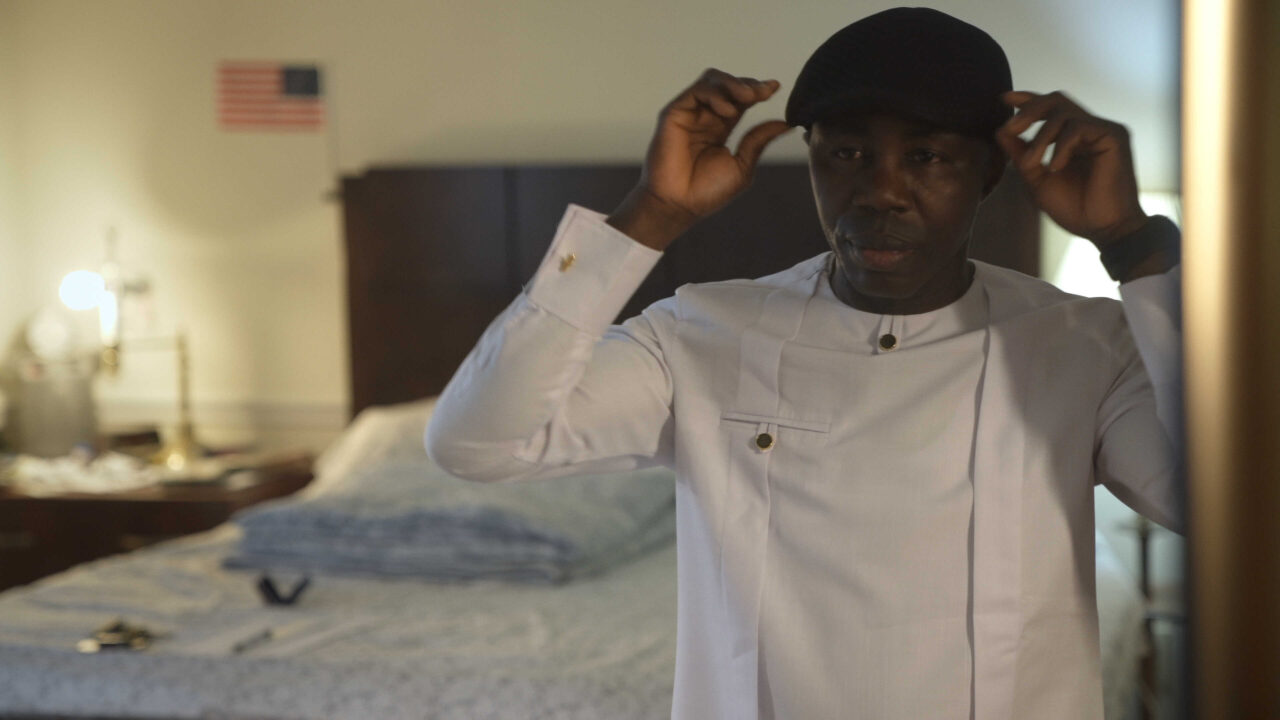
Were there any obstacles you both faced at the upfront or creative problems you had to solve while beginning pre-production? What were the first steps you took to begin making this from a logistical level?
Claudia: The biggest question we grappled with in the beginning was about the scope of the story. Initially, we wanted to make it a feature documentary within the retirement community. Such as, following staff members and their volunteer tutors as they prepare for the US citizenship exam. This was nice in theory but logistically and financially challenging. We also wondered about being able to sustain dramatic tension over the length of a feature. After weighing our options and speaking with several residents and staff members, we decided to narrow our focus to a single story and make it a documentary short. Keeping the film intimate and personal felt like the best way to get to the emotional heart of the story.
Seeing that you both share co-director credit on this film, what responsibilities did you both end up having? How do you find that you best collaborate?
Laura: Claudia and I worked closely together on all aspects of the film. We had a very similar vision for the storyline, which made it a really fun and collaborative process. We found that two brains were better than one at thinking through all aspects of the vision – casting, production, and editing process. In particular, it has been really helpful having two of us tackle various aspects of our education and outreach campaign, as well as dividing up travel and speaking engagements related to the film festivals we’ve attended.
We’ve been accepted at 16 festivals and counting, and I’ve loved having a co-director to share this journey with. At the end of the day, Claudia and I trust each other’s creative instincts and have a genuine blast working together, which has made co-directing a wonderful experience!
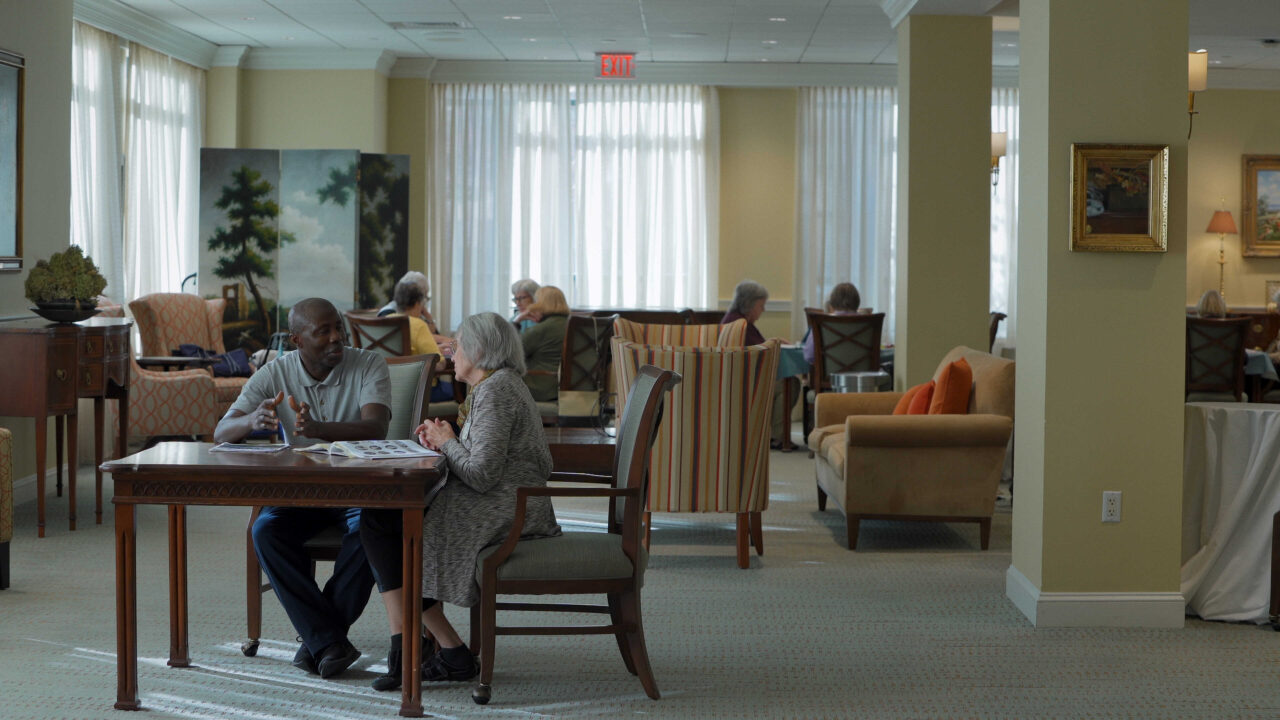
The main subject, Eric Frimpong, is such a great, good-hearted person and subject to follow. When did you decide he would be the film’s main subject? What was it like meeting him? Did you have any reservations or conversations about shooting him during such a stressful time of his life?
Claudia: We were immediately taken by Eric’s quiet confidence. He was also extremely open and honest – about the sacrifices he’s made, the challenges of staying connected to his wife and children while being apart for eight years, and the high stakes of acquiring US citizenship. Eric felt the pressure while also exuding a sense of calm. He was proud to share his story. The day we first met, I remember he offered to call his wife Sandra on WhatsApp to introduce me to her and his children. Their family bond was incredibly strong despite the years spent being apart. It was touching, and also inspiring.
The other subjects, Jill and Carl (Eric’s devoted tutors and retirement center seniors), are equally important in the film, both playing such a big part in Eric’s story. How did you meet them, and what conversations did you have about also including their stories on the screen?
Laura: We met Jill and Carl at the same time that we met Eric. They were a big reason that we chose to tell Eric’s story. Jill and Carl are simply the most lovely, kind, and generous people. And we knew their warmth and love would shine through in the film. They were also keen to tell the story on camera, as their relationship with Eric was deeply meaningful to them both. The fact that they had become “family” with Eric was such a beautiful testament to the power of the citizenship program, and we knew we had to make them part of the film.
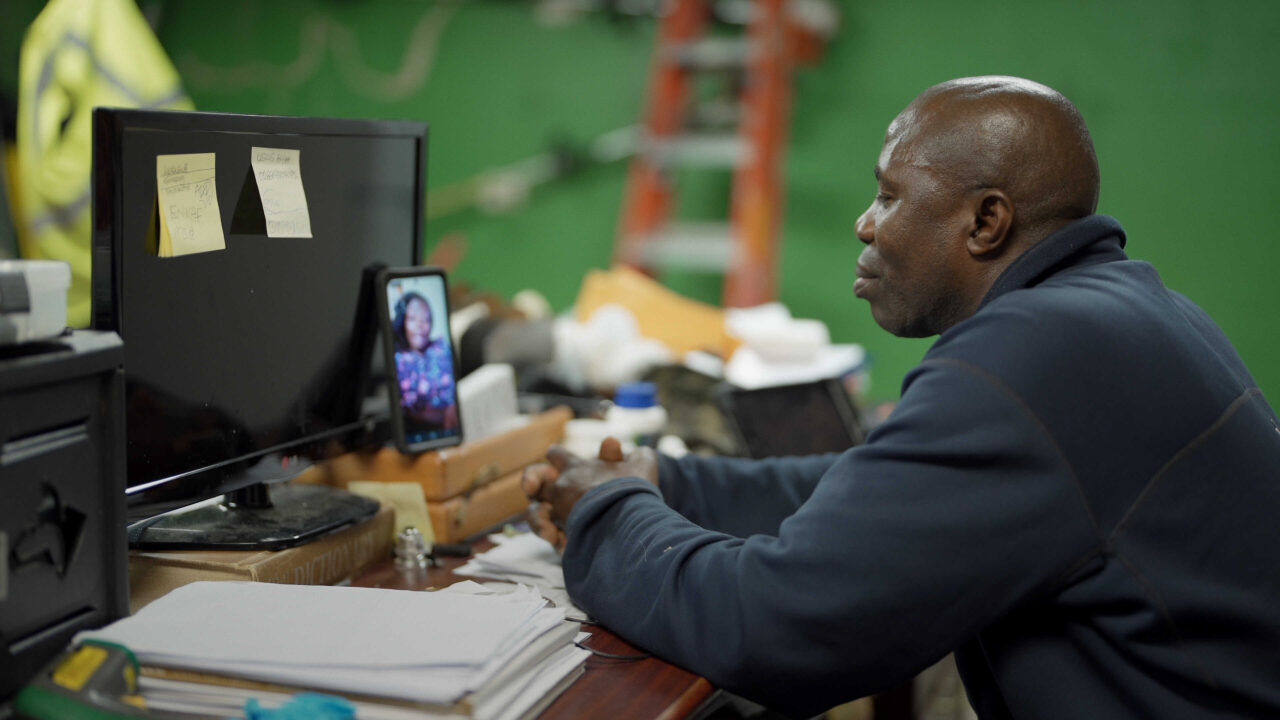
What were the most challenging parts of making this film that you both faced?
Laura: Like many filmmakers, the most challenging aspect of making this film was funding. Because Eric, our main participant, was in the middle of the citizenship process, we knew we didn’t have time to wait for traditional funding methods, like film grants, to come through. So, we worked with several talented graduate students in our graduate film program at American University and self-funded much of the film.
Did you have any new revelations about the film during editing, or once you finished, and shared the film with audiences?
Claudia: I don’t know if it was a revelation, but it has been thrilling to see how moved people are by Eric’s journey and his relationship with Jill and Carl. There’s nothing better as a filmmaker than knowing you told a story that resonates deeply with the audience.
What takeaway do you hope audiences will have after watching your film?
Claudia: I have many hopes for the film! That it will move people, that it will spark conversation, that it can help reframe the immigration debate in a positive light. Most importantly, I hope the film inspires some people to take action. Other retirement and assisted living homes could so easily replicate the citizenship program in the film. The sense of community, purpose, and belonging that the process creates is invaluable. This type of program offers a real-world, inexpensive solution to the loneliness epidemic among immigrant workers and older adults. It could also be a powerful tool in addressing the workforce shortage in aging services in America. I’ll just finish by saying, if people want to see all the ways they can take action after watching the film, they can visit our website: testdocumentary.com
Laura: I hope that viewers of The Test walk away with a newfound faith in humanity. The people portrayed in the film are some of the best human beings we’ve ever met in our lives. Their love for one another and their country is contagious. And we hope your heart lights up when you experience their story.
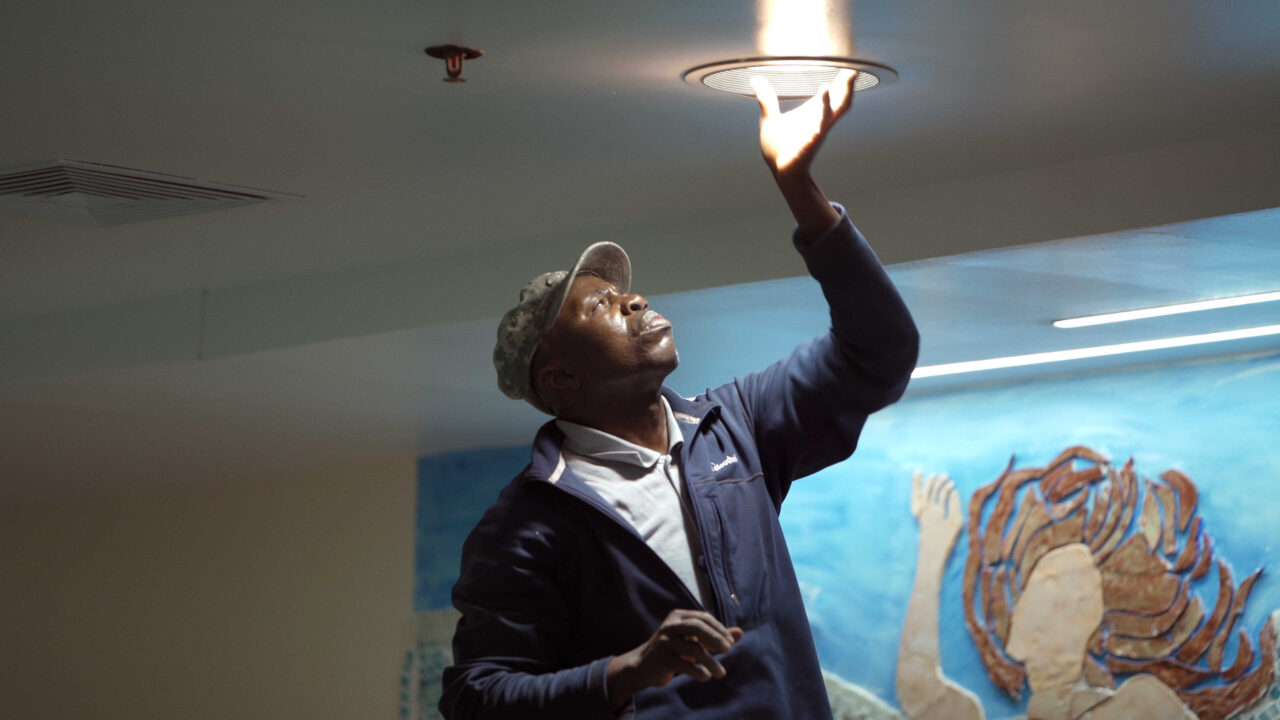
What is the future of this film, and do you have any future creative projects?
Laura: Our vision is that the film can serve as a bright spot here in this season of division, and political upheaval, and be a reminder of the power of the American Dream and the best of what it means to be a citizen in America. The film is currently on the film festival circuit, and it’s won best short documentary at two festivals already. We hope to continue to show the film far and wide through the film’s national outreach campaign, which we recently launched. Our goal is to start conversations about the loneliness epidemic in the US through creative means like the Goodwin House Citizenship program. We also hope the film can remind people of a positive story of legal immigration. A few ways that people can involve themselves are:
- Host a screening in your community!
- Start conversations that change perceptions and stereotypes around aging in America and legal immigration.
- Support Goodwin Living’s existing program or start your own!
- Learn more at: testdocumentary.com
Claudia: I’m very excited about the launch of our impact campaign to see how many people we can reach. In terms of future projects, I plan to return to fiction for a while. I’m currently developing several feature films and a TV drama about restorative justice.
What is one message that you would like to share with audiences about your filmmaking, and general outlook on life?
Claudia: In addition to being a filmmaker, I’m proud to be a faculty member in American University’s School of Communication film program. The motto in our division is “Media That Matters.” It’s something I strongly believe, in and try to impart to my students. I hope to tell stories that will impact and inspire people. As well as foster the idea that we are fundamentally interdependent and interconnected.
Laura: My leadership at American University’s Community Voice Lab informs much of my creative work. The Lab elevates the voices of marginalized community storytellers through collaborative filmmaking endeavors. It's a vehicle for engaging students in my creative scholarship and is a vital aspect of my role as an educator. I’d love for people to check out my additional films on my website (www.LauraWatersHinson.com). As well as the Community Voice Lab site: https://www.american.edu/soc/community-voice-lab/
Laura Plancarte Lives, and Creates, The Dream
When setting out to create her next feature film, director Laura Plancarte had three clear goals: to portray a strong woman breaking stereotypes about femininity, return to her roots in Mexico, and challenge clichés about the dreams and capabilities of impoverished women. It's safe to say that her new film, Mexican Dream, does exactly that. A hybrid documentary/narrative film that tells the story of a woman who flees to Mexico to avoid abuse, regain custody of her children, as well as undergo IVF, the film speaks to the strength of women worldwide.
Related: 'Mexican Dream' Review: A Tale of Heartache and Second Chances
In our exclusive interview, director Laura Plancarte discusses the inspiration behind making Mexican Dream. Further, she talks about working with her main lead, the responsibility she felt portraying Latina women onscreen, and her hopes for future films: "Things that from the outside seem inexplicable, when you go deeper you find clues, sometimes answers, sometimes a certain hidden truth."
Cinemacy: Your new film, Mexican Dream, follows a woman named Malena fleeing to Mexico after enduring an abusive relationship and custody battle for her children. I understand that the film initially started as a documentary before it turned into a hybrid doc-narrative film. What was the original idea for this project? How did you find Malena, and what about her did you connect with when deciding you wanted to tell her story?
Laura: After completing my last film, Non Western, I had three clear goals for my next project: I wanted to portray a strong woman breaking stereotypes about femininity, return to my roots in Mexico, and challenge clichés about the dreams and capabilities of impoverished women.
With the help of a friend who participated in my first film, I reached out to women in Mexico, inviting them to join me for a Zoom call to discuss the possibility of creating a documentary about their lives. The day I met Male, the protagonist of Mexican Dream, I knew it was her who I was looking for. Not only did her strength and charisma come across straight away, but her desire to have another child through IVF, despite her complex relationship with her teenage children and financial hardships, intrigued me. I realized she could challenge audiences to see a different side of a Mexican woman who comes from poverty, breaking stereotypes and shedding light on the complexities of femininity, motherhood, and Mexico's unjust social structure.
Her strength inspired me deeply. It drove me to create a film that could inspire and support other women who have faced similar experiences.
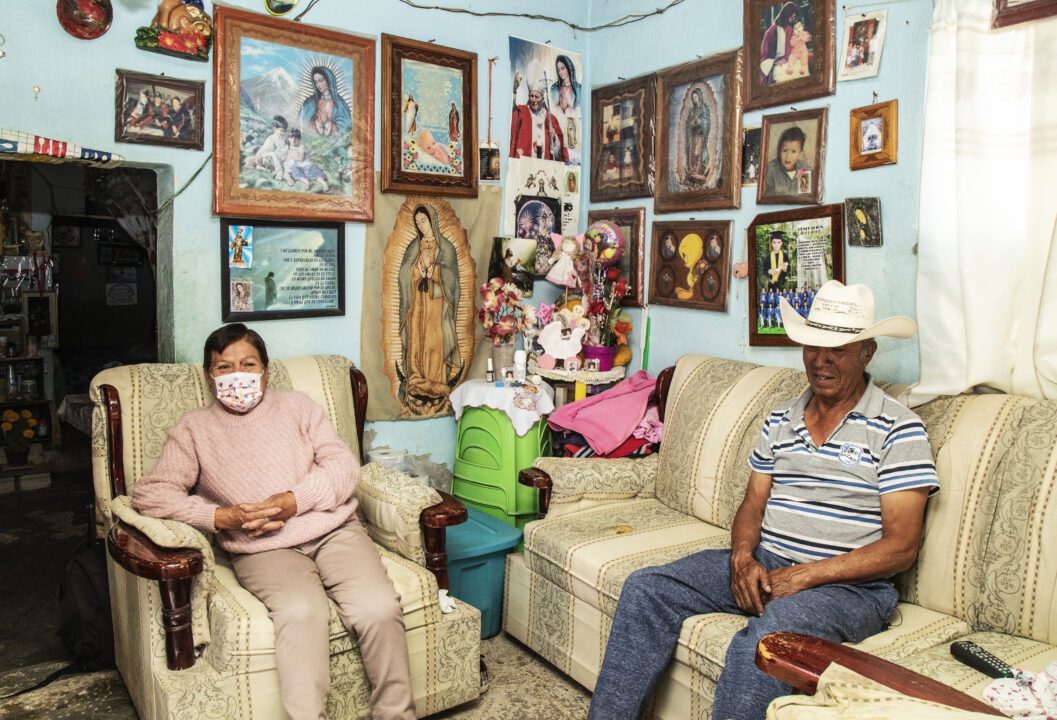
We see that Malena endures much hardship in her life, surviving an abusive relationship with her ex-husband to whom she loses custody of her children, and undergoing IVF. What ideas, themes, and messages did you want to ensure came through in telling her story on screen?
I've witnessed it first-hand time and again: women are consistently at the back of the line in discussions to promote fairness. Our society remains deeply patriarchal. While progress has been made over the past 50 years, there's still much work to be done. We've all internalized patriarchal norms to some extent, which is why the fight must continue. In Mexican Dream, I aimed to ensure that the audience could witness the multitude of roles and expectations placed on women. From being mothers to breadwinners, and caregivers to the glue holding families together, women are expected to excel in every aspect. Yet, if they fall short, they're often labeled as bad mothers or selfish individuals. I wanted to make a portrait of femininity. Not only with the Male’s story, but with the stories of all the women that appear in the film.
I’m not a mother myself, and I find it incredibly unfair that society still expects mothers to be a sort of saintly figure. There's no rulebook dictating that becoming a mother means sacrificing one's individuality. While caring for children is crucial, we must recognize that mothers are individuals with their own needs and aspirations. By creating a society that supports rather than impedes mothers, we can strive towards a more balanced and equitable world. With Male’s story, I wanted to reach to the audience and say: ‘Yes she’s not perfect, no one is, but she’s pretty great.’ She has never settled, she fights and works relentlessly. While her relationship with her children is complicated, a society that prioritizes support over punishment could significantly improve their dynamic.
What was your approach to working with Malena as the project began? I can only imagine collaborating was tough, given she has lived a hard life.
Since the beginning, I knew I wanted to make a film in collaboration with Male. Through making observational documentaries previously, I learned that participants can be disappointed in the way they’ve been portrayed, even though I aim for honesty and sensitivity without sensationalism. We all have idealized self-images. So, I searched for a method where I could authentically tell Male’s story. Also, while giving her agency in the way she was going to be represented. I sent Male an iPhone with accessories so she could film herself and I could blend material filmed by her with material filmed by me. It was challenging because soon after I met her in late January of 2020 the pandemic hit. During our first year of collaboration, we met via Zoom for one-and-a-half-hour sessions on Mondays, Wednesdays, and Fridays.
When lockdowns eased, I traveled to her hometown to film her and her relatives and when we were apart, she filmed herself and I directed remotely. It was challenging but an incredible experience. In a way our Zoom sessions became like a recorded diary of what was happening in her life, what she felt, thought, and desired.
How did the decision to turn the documentary into a hybrid film (co-written by you and Malena) come about? What were the first steps you took to transform it into a written feature film?
After a year and a half of filming together, Male regained custody of her teenage children. While this was great news, it posed complications due to the fragile nature of their relationship and the vulnerability of her children. Therefore, our working method evolved into writing together instead of filming together. This way Male could protect her relationship with her children, and it would also give her children agency in the way they were going to be represented. It’s very different to be caught on camera than to re-enact an event or show how you feel or think about something. I’m very happy that we took this route, as it has been a great pleasure to collaborate with all the participants instead of just observing and filming them.
Whether through a pure observational documentary or a hybrid film created in collaboration, both approaches can unveil a certain truth, shaped by the director's perspective. I believe that the way Male represents herself in front of the camera carries a greater sense of power compared to the footage captured earlier when we were both filming her story. It may seem unconventional, but the footage filmed after our writing collaboration, reveals deeper truths than our earlier material.
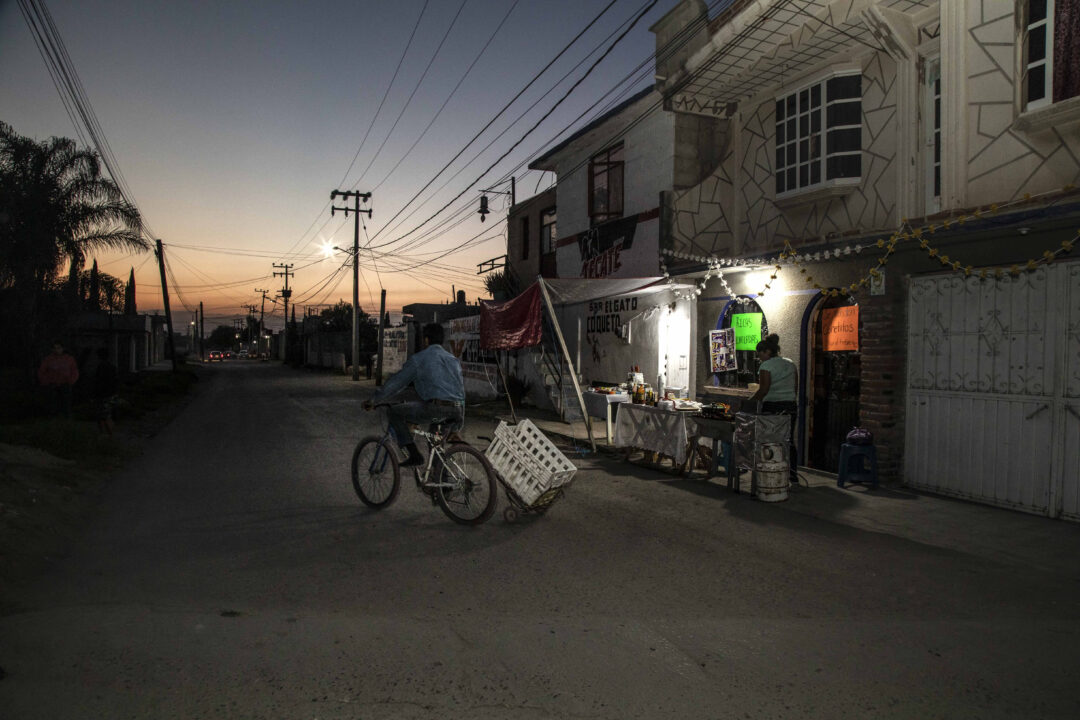
What obstacles did you face throughout making the project? What was the hardest, and what was the most unexpected?
The biggest challenge in the making was navigating the delicate dynamics of her relationship with her teenage children. When Male regained custody of her kids, I interviewed her son Jhovani. Even before I could ask a question, tears rolled down his cheeks, revealing his vulnerability. It became evident to me that while Male chose to work on a film with me, her son didn’t. At that point, I realized that we needed to find a different approach. It wasn’t worth taking chances and risking her children getting hurt. When I proposed to Male to shift our collaboration from filming together to writing together, Male initially felt disappointed. She enjoyed the process of filming herself with the iPhone and recording sound. However, when she realized how this would protect her children and their dynamic, she embraced the idea.
The hardest moment to film was the scene where Male's daughter, Fátima, rejects her. It was particularly challenging, as it required them to re-enact painful past experiences. Despite the difficulty, Male shared that on the day after the shoot, she and her daughter engaged in an open conversation about unresolved issues between them. And, that she was pleased. This was rewarding to both them and me.
Is there any scene in particular that you are most proud of, or think of fondly?
It’s difficult to name one scene, so I’ll tell you my favorites: The scene where the Male and the group of women gather for a BBQ, sharing their experiences in motherhood, was a moving moment for me and it was eye-opening.
My favorite scene visually is when Male and Edgar are in their bedroom. The curtains cast a pink-red hue, enveloping the space in a warm glow, and we can witness authentic intimacy between them.
The closing scene at the bar, with Male, Carla, and Juanito singing, was loads of fun. They are some of the most vibrant and enjoyable people I've met. While filming their conversations I often struggled to contain my laughter. Making the film was quite a rewarding experience.
What takeaway do you hope audiences will have after watching your film?
I hope the film challenges the notion that individuals from impoverished backgrounds have limited dreams, or that aspiring to bigger dreams is foolish.
My aim for the film is to spark conversations about the societal expectations placed on mothers. I also hope to convey that there are always choices available to women. Being a mother is a significant responsibility and it's not a path for everyone. Women should have the freedom to choose whether to have children or not, without feeling pressured by societal norms.
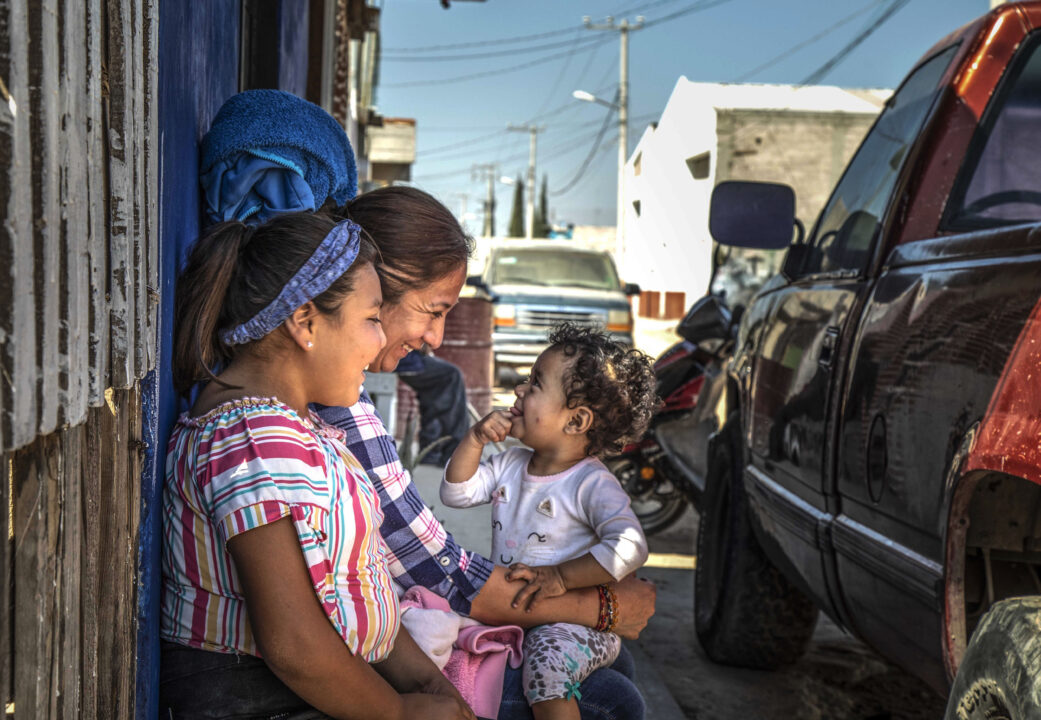
Let’s get to know you both better. Where are you from, where do you reside?
I'm originally from Mexico but have been living in London since 2009, something I didn’t expect or planned. In Mexico, I worked as a visual and performance artist. In 2008, I started seeking opportunities to grow in my career. It was a surprise when I received a grant to study for a Diploma in filmmaking in London. However, because I made video art, it made sense. I fell in love with both filmmaking and London, nowadays, film has become my primary medium of expression.
What are your favorite films, who are your filmmaking idols, and dream collaborators?
Since working as an artist, films have always been my creative references. I've had many love affairs with films and filmmakers. When I was 20, Pedro Almodóvar enamored me. Particularly, his film 'Tie Me Up! Tie Me Down!' As I entered my 30s, it was David Lynch and 'Lost Highway' that captivated me. I admire the works of Chloe Zhao and Hirokazu Kore-eda. Recently, I found myself obsessed with the French film 'Full Time.' Each phase of life brings new cinematic loves and inspirations.
What is one thing you’ve learned as a filmmaker that you think other filmmakers would benefit from knowing in starting their careers?
Don't believe that one mistake will ruin your chances. If you work hard and you push a door will open bringing a new opportunity. Don't give up when things get tough; the industry is full of ups and downs. Enjoy the journey because awards and recognition are temporary.
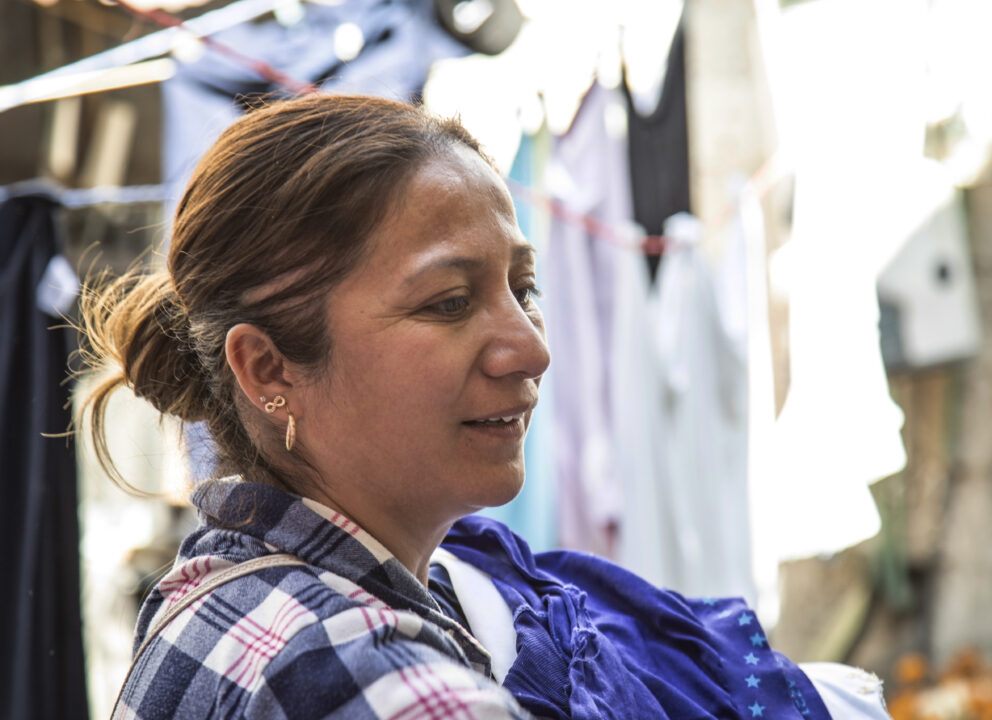
What is the future of this film? Do you have any future creative projects?
Mexican Dream just got Distribution in Spain through DocsBarcelopna’s distribution company Planeta. They promised at least 60 cinemas, plus TV and VOD and I’m very happy about this. Now at HOT DOCS where the film is having its international premiere, I have meetings with Canadian and American distributors, and with broadcasters and VODs. Fingers crossed; I think more good news will arrive soon. It’s a film that touches on very universal topics.
I'm currently working on a film about an interracial French boxing couple living in London. George and Sonia are both passionate Muay Thai fighters and the proud parents of a beautiful two-year-old boy. They are incredibly charismatic. And they are set to challenge the audience's preconceptions about fighters, gender roles, and the motivations behind their choice to risk it all in the ring. They are both successful, own their own boxing gym, share a deep love, and are great parents. So, why risk it all? With this film I want to delve into our societal obsession with achievement and our addictions, exploring the psychological journey behind our relentless need to prove ourselves, whether as exceptional athletes, filmmakers, scientists, or in other pursuits.
What is one message that you would like to share with audiences about your work, your general outlook on life, that you are interested in further showcasing in your films?
My passion has always revolved around working with real people. I believe there is nothing more potent than reality itself. And I love meeting people and learning about worlds different to mine. In a way, it's like reading a book where you get to meet the characters. I think it's a real treat. Since working as an artist, I’ve been trying to find answers to existential questions, and I’m fascinated by human behavior. I’m interested in exploring why we choose the things we do. Things that from the outside seem inexplicable, when you go deeper you find clues. Sometimes answers, sometimes a certain hidden truth.
I feel very blessed to get the opportunity to do what I love and to be able to share it. I want to open conversations and portray that things and people are complex. That there is no easy solution. Things aren’t black or white. I’m very grateful as I have had great adventures in all my films. And I have fallen in love with all my characters. I think it wouldn’t be possible for me to do it otherwise, as I spent at least three years with them, watching them every day either in person or in filmed material. And receiving emails from audience members sharing how my films have impacted them is a full-circle moment for me.
To learn more about Laura Plancarte, visit https://www.lauraplancarte.com/



